Threadcity.us
Gallery
Trade and Business Cards |

|
....... |
Trade
cards were a common form of advertisement in the late 19th and
early 20th centuries. About the size of baseball cards (a
typical trade card measured approximately 7 mm x 11 mm), they
usually had an image (sometime accompanied by a short catch
phrase) on the front and advertising text on the back. The image
was designed to grab people's attention, while the text provided
more information about the product and where to purchase it,
sometimes including the names and addresses of the local stores
that carried it. The cards below are some trade cards published
by the Willimantic Linen Company, which manufactured thread in
Willimantic, CT, from 1854 until 1898, when it was acquired by
the American Thread Company. The Company manufactured
enough thread in its massive Willimantic plant to circle the
globe every forty minutes. That's a lot of thread. Indeed, by
1890 the WLC produced about 90% of the cotton sewing machine
thread manufactured in the United States.
Thank you to Jamie Eves and
The Mill Museum
for thisinformation
Click here to see TRADE
and BUSINESS
CARDS
from local businesses
|

JumboWhen Barnum and Bailey's Circus brought Jumbo, the largest elephant in captivity, from England to the United States in the 1880s, it hit the national headlines. The Willimantic Linen Company soon jumped on the bandwagon and produced this card. It depicts Jumbo being dragged through the streets of New York City with unbreakable Willimantic cotton thread!
|
|

Brooklyn Bridge
The Willimantic Linen Company were early pioneers in the production of color lithographic advertising cards. This card was published in 1883, and depicts the recently completed Brooklyn Bridge in New York City, constructed from Willimantic cotton thread, spools, bobbins, and thread packing cases. Note the juxtaposition of the largest mill in the world. The Linen Company's Mill Number Four, built in 1880, floats in the sky above the world's largest bridge.
|
|
Gulliver
When first published in 1726, Jonathan Swift's book Gulliver's Travels caught the public's imagination and instantly became a best seller. The Willimantic Linen Company quickly exploited the book's popularity. This 1884 lithograph depicts the Lilliputians tying down Lemuel Gulliver with Willimantic's "best six cord spool cotton." The artists hired by the Willimantic Linen Company always ingeniously incorporated spools of cotton into the scenes.
|
 |

Puck
The Willimantic Linen Company employed both popular and elite culture to advertise their products. This 1888 card depicts the mischievous Puck, from Shakespeare's Midsummer Night's Dream, wrapping not a girdle of silver thread around the earth, but a girdle of Willimantic cotton thread!
|
|

Willimantic Linen Company's Number Three MillThis 1910 postcard depicts the Willimantic Linen Company's Number Three Mill. It was erected in 1845 by the Wellesville Company on the site of Willimantic's first cotton mill built by Perez Richmond in 1822. The Wellesville mill became part of the Linen Company in 1876. It was demolished in the late 1920s, and stood on the city's Recreation Park. This idyllic view depicts the mill raceway and provides a somewhat over romantic view of industrialization, in a style known as "the factory in the garden."
|

Cute kids and animals
Cute kids -- and cute animals are used to sell products, then and now. Although the dog in this 1885 winter scene is not that cute! Note the large spool of Willimantic cotton thread on the sleigh.
|

Cute kids
Cute kids are favored by advertisers today. It was no different a century ago! This card depicts three young girls becoming entangled in Willimantic cotton thread.
|
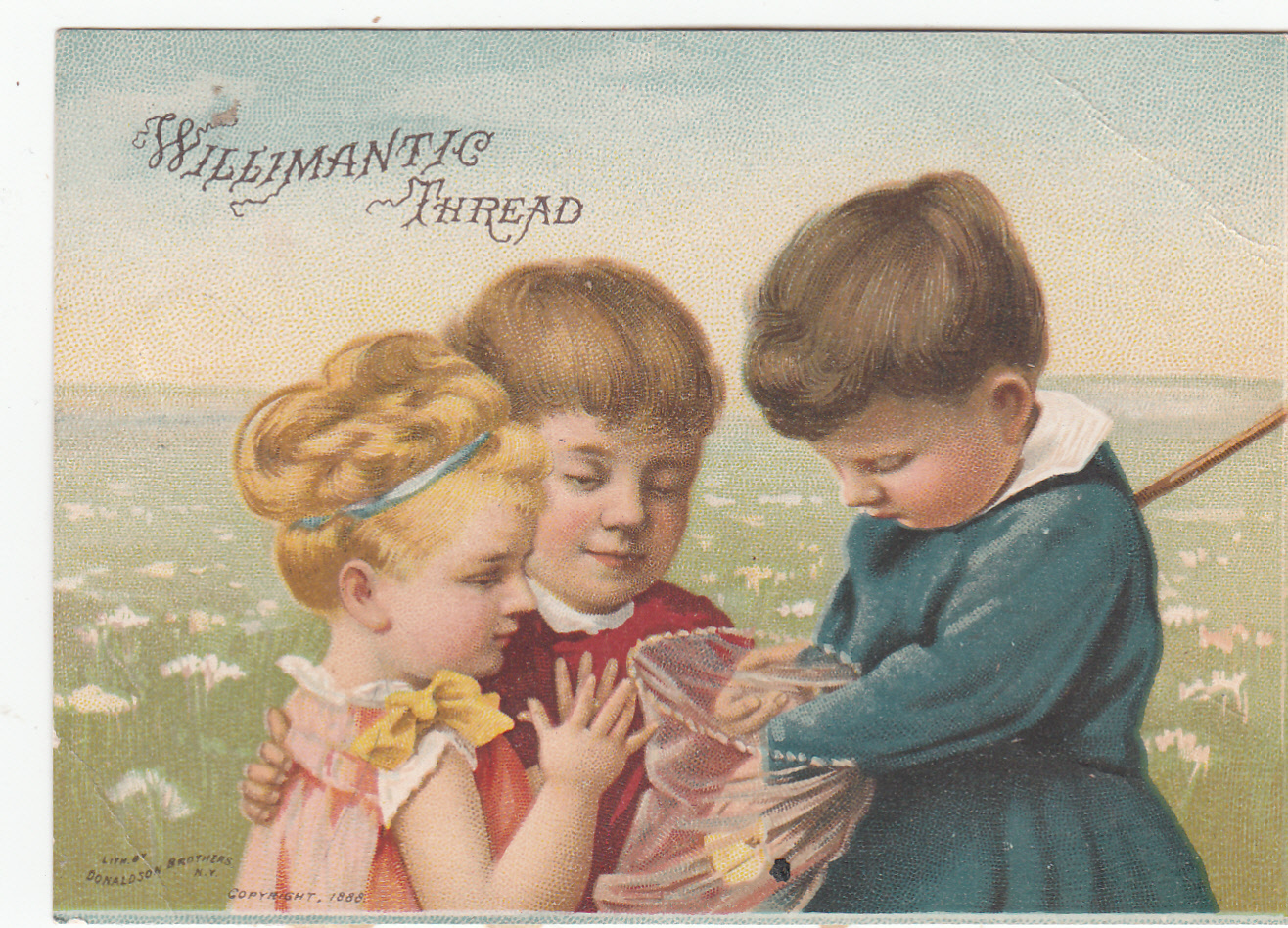 |
 |
 |

Trade
card of a girl wrapped in white fabric. The back of this card
addressed "the lady receiving this card," implying it
specifically was given to women. |
 |
 |
 |
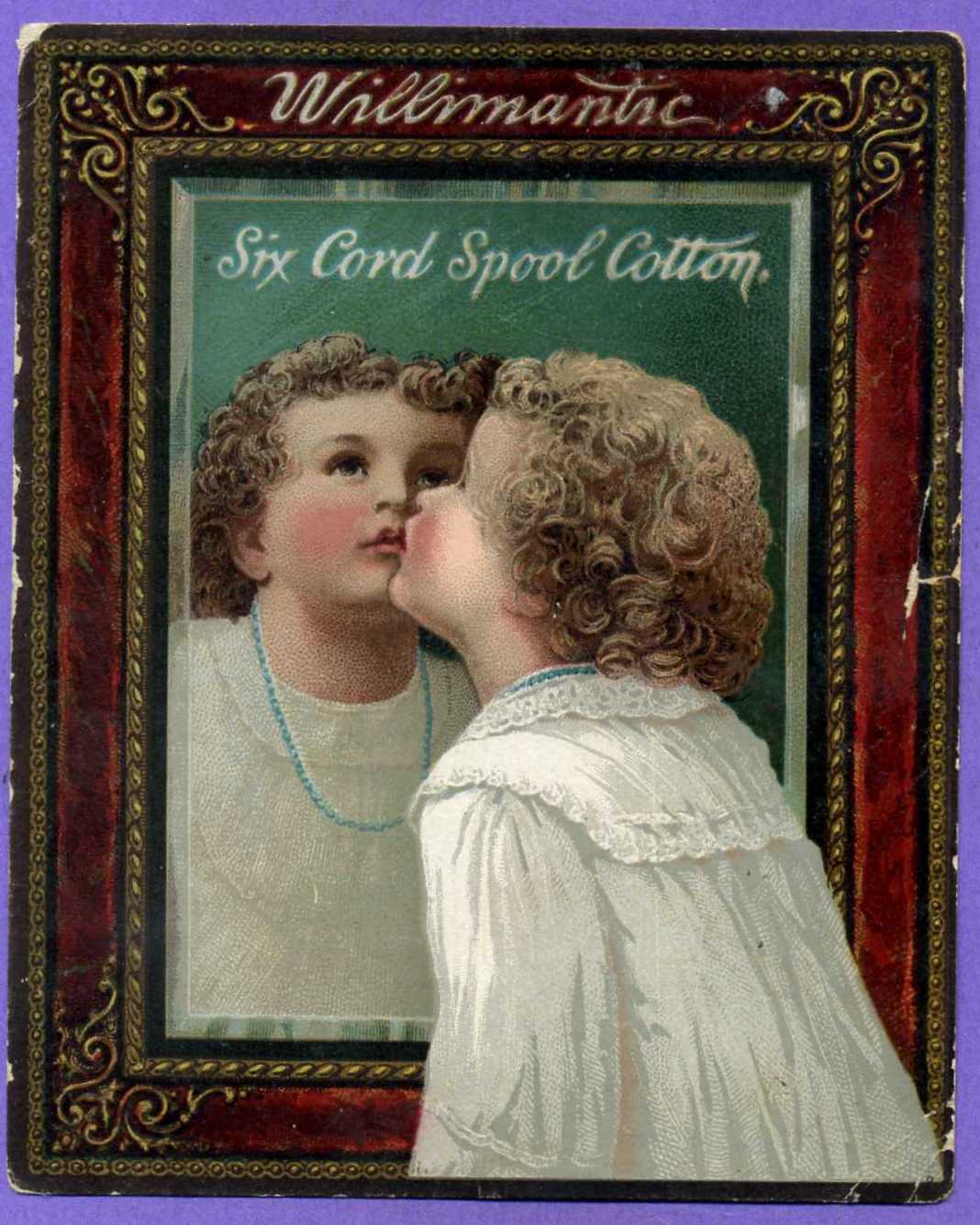 |
 |
|
|
|
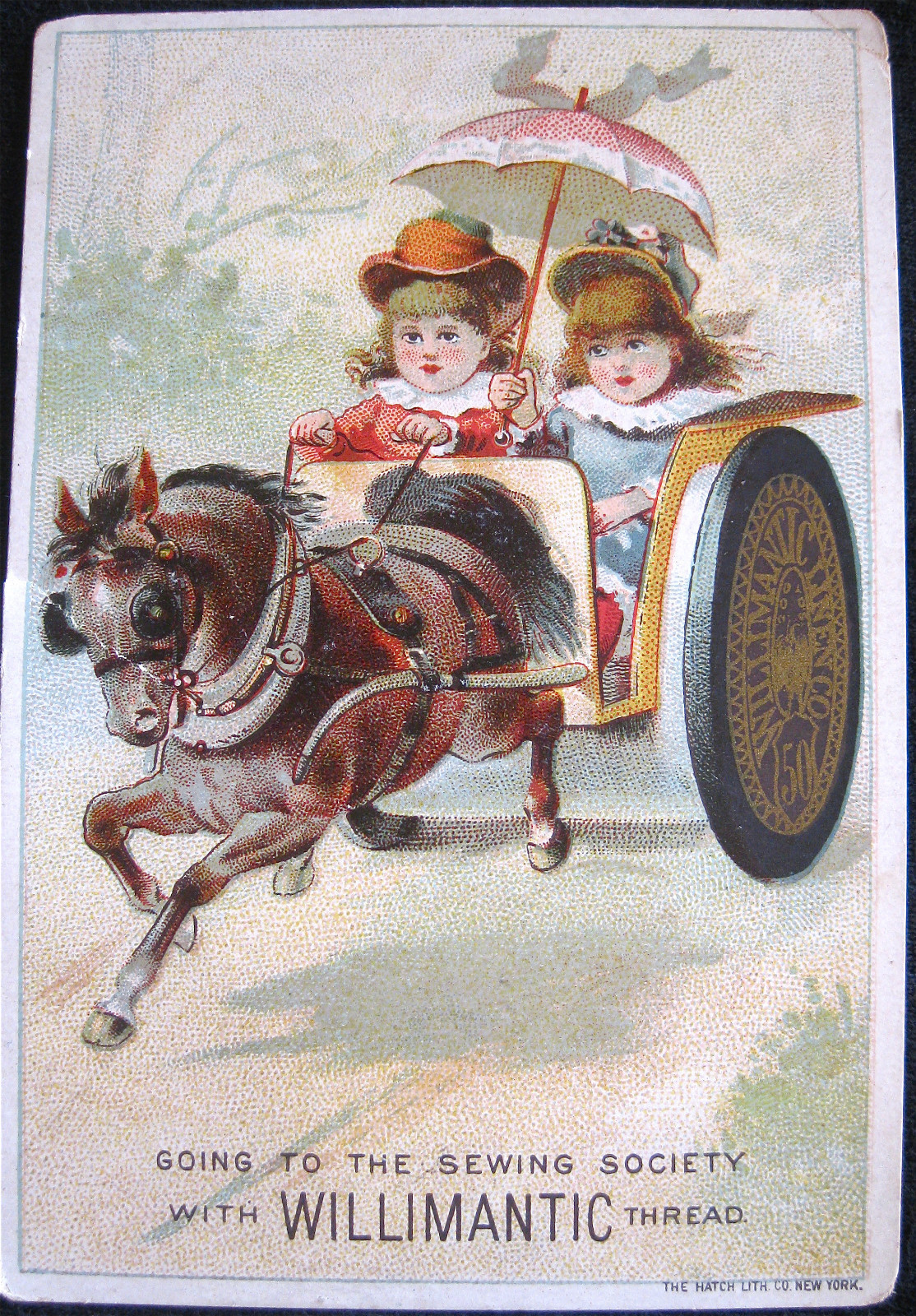 |
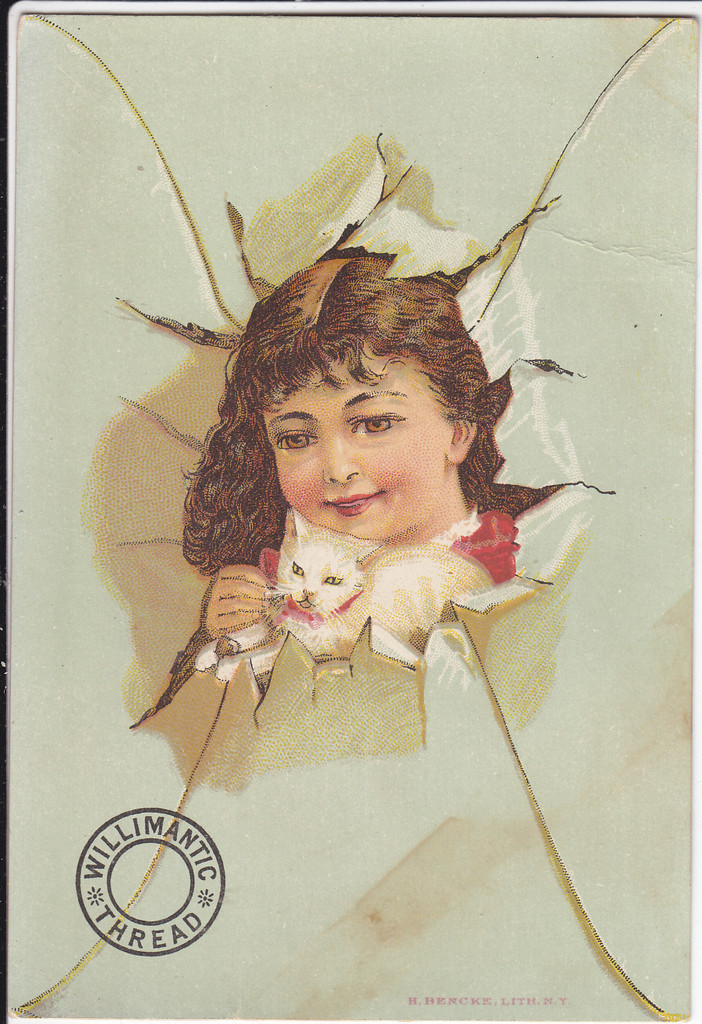 |
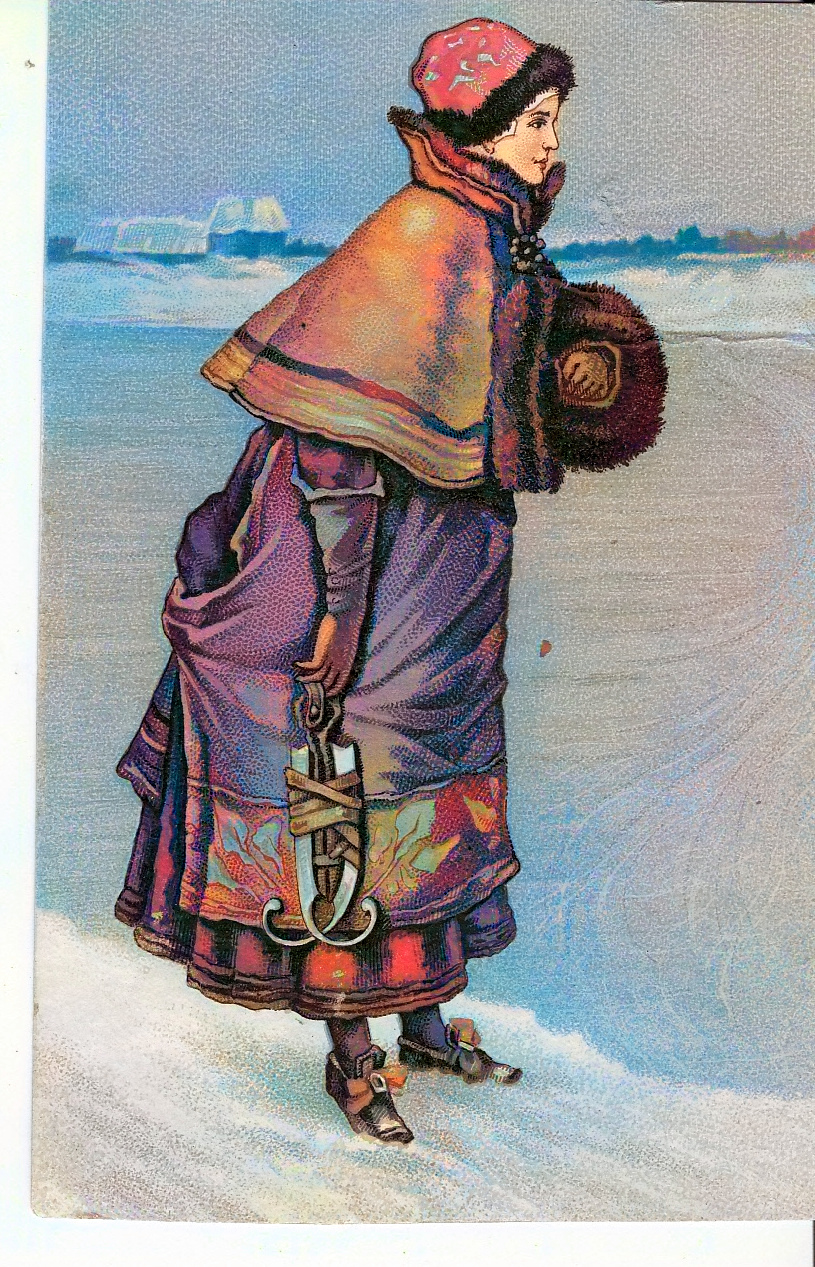 |
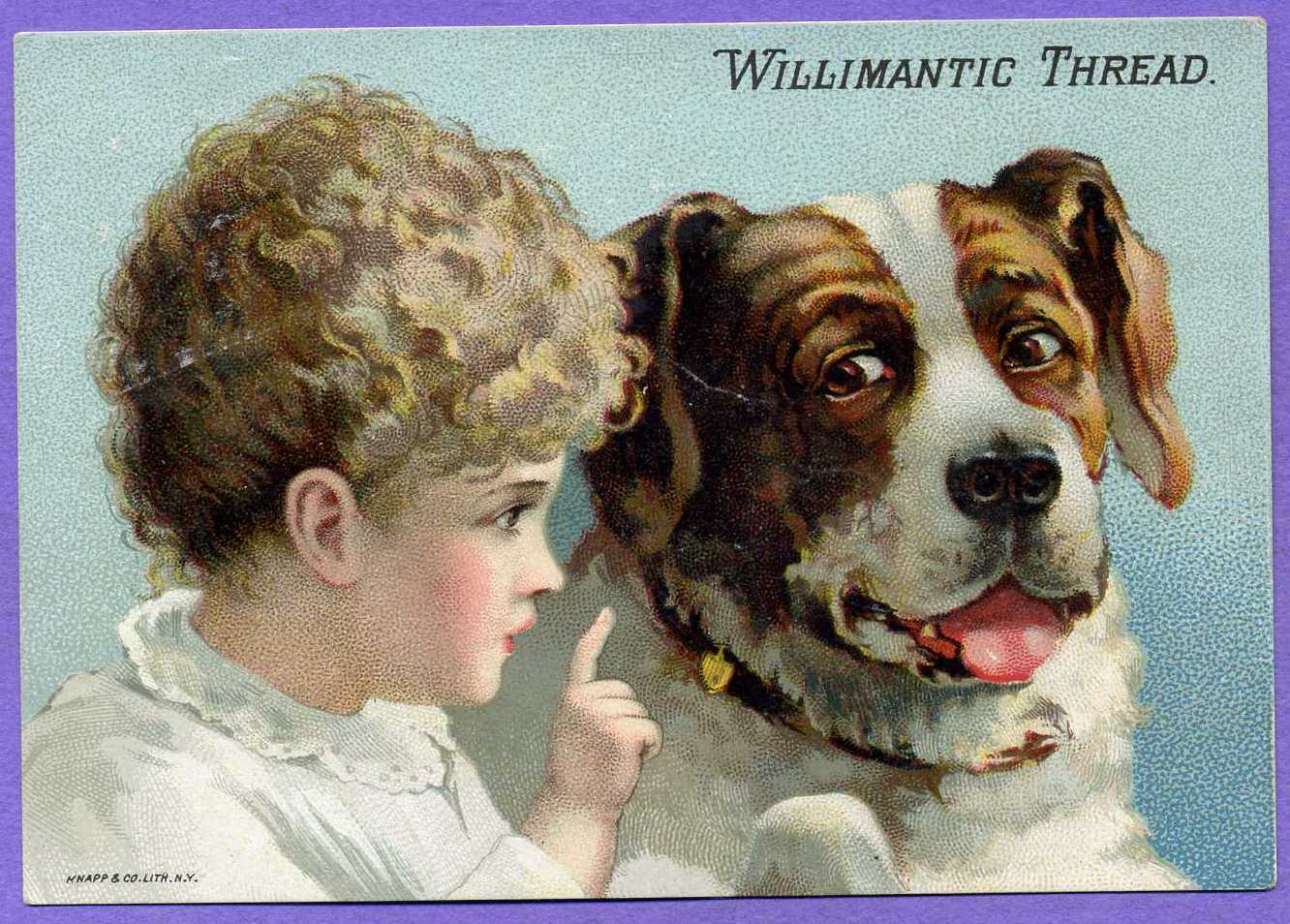
|

Trade card of a woman in extravagant dress. The illustration
itself draws attention through contrast and framing, making this
trade card more of an art piece than a simple marketing tool. |

Trade card of two children playing underneath a window sill.
This is an example of a more fun trade card, with many different
elements building a memorable narrative. |
|
|
|
|
TRADE AND
BUSINESS CARDS
FROM LOCAL BUSINESSES |
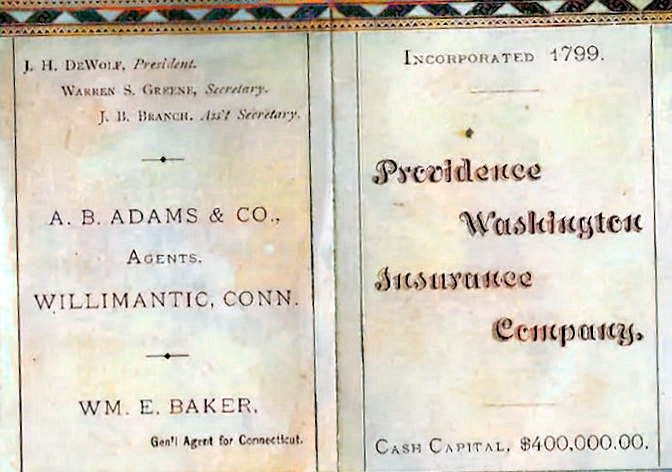
Amos B. Adams business was located at
36 Union Street.
The company sold fire, life and
accident insurance. |
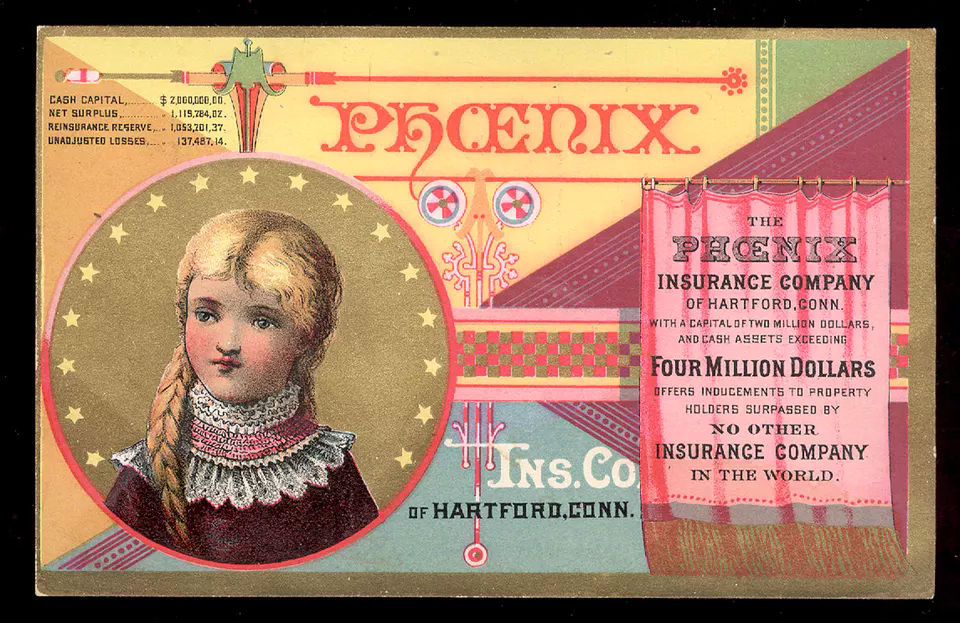
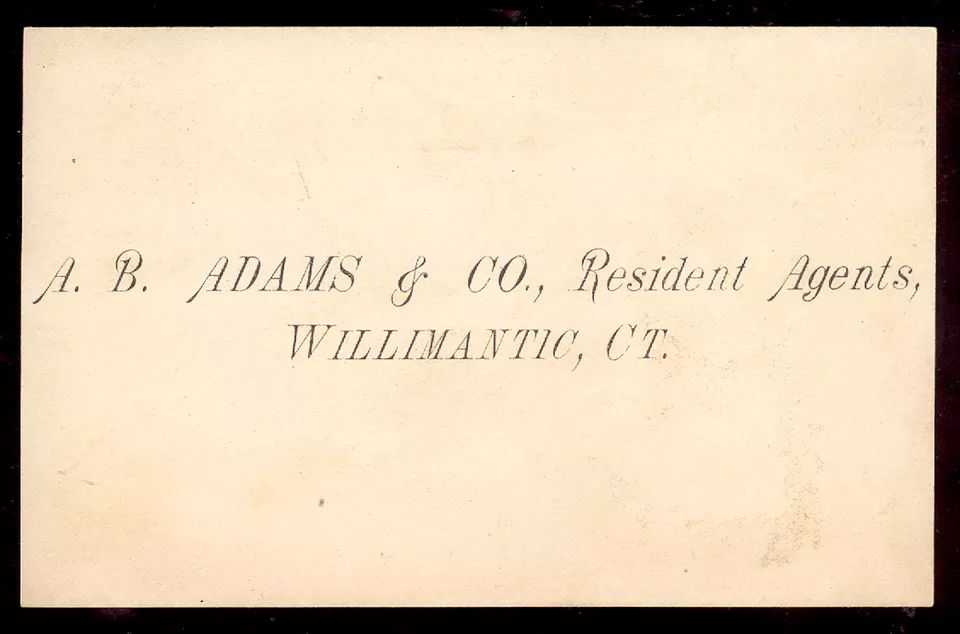 |
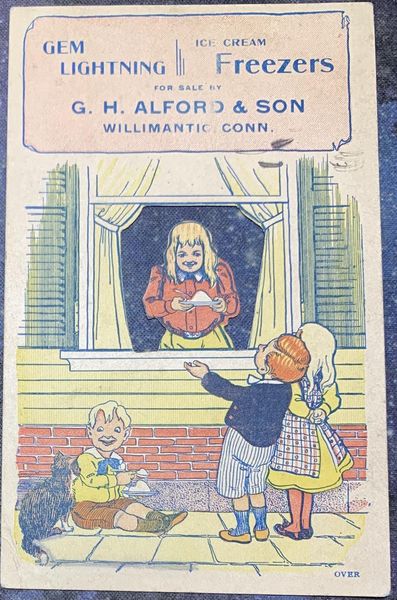
A.G. Alford's business was at 667
Main Street. He sold "general hardware" as well as
agricultural implements, machinery oils, iron pipe, plumbers'
supplies, wheels, rims, spokes, shafts. He also sold dynamite.
He ran the business for over 40 years. |
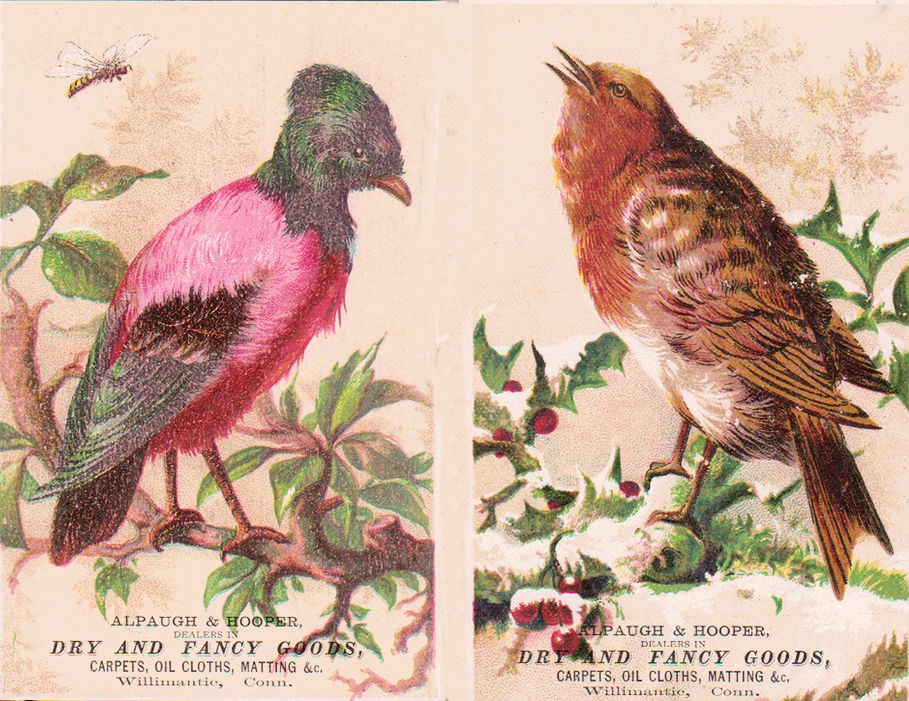 |
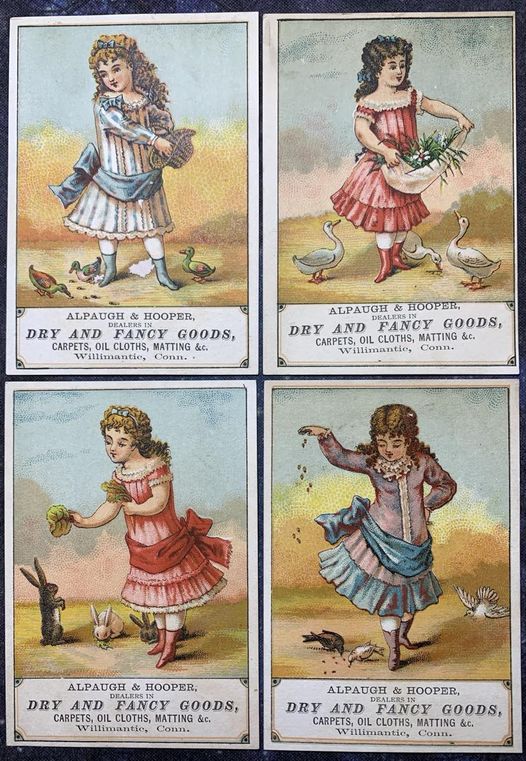 |
|
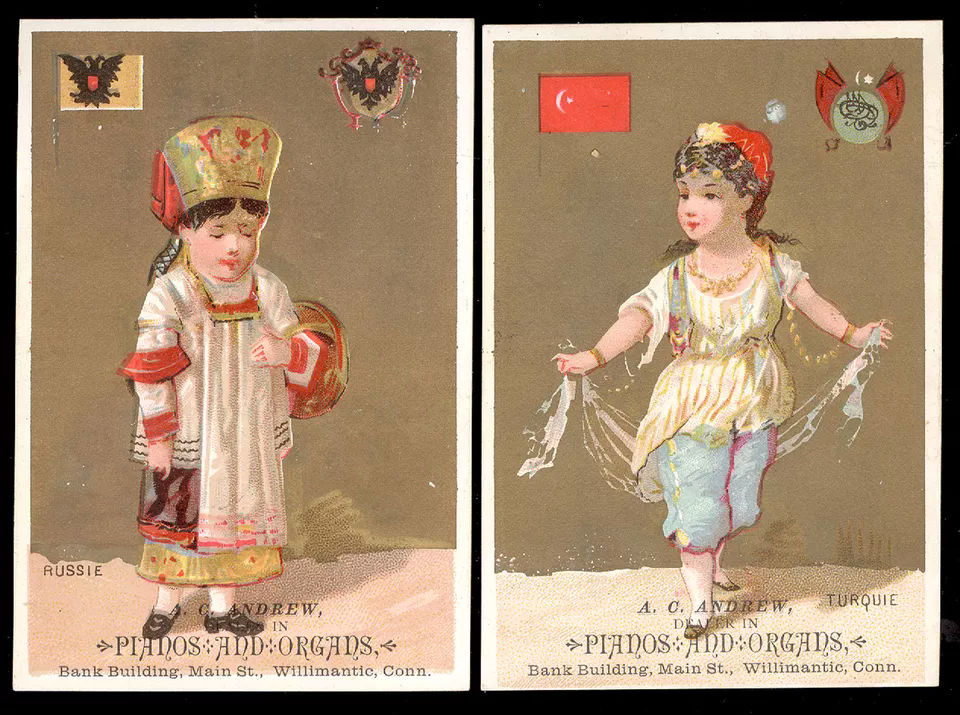 |
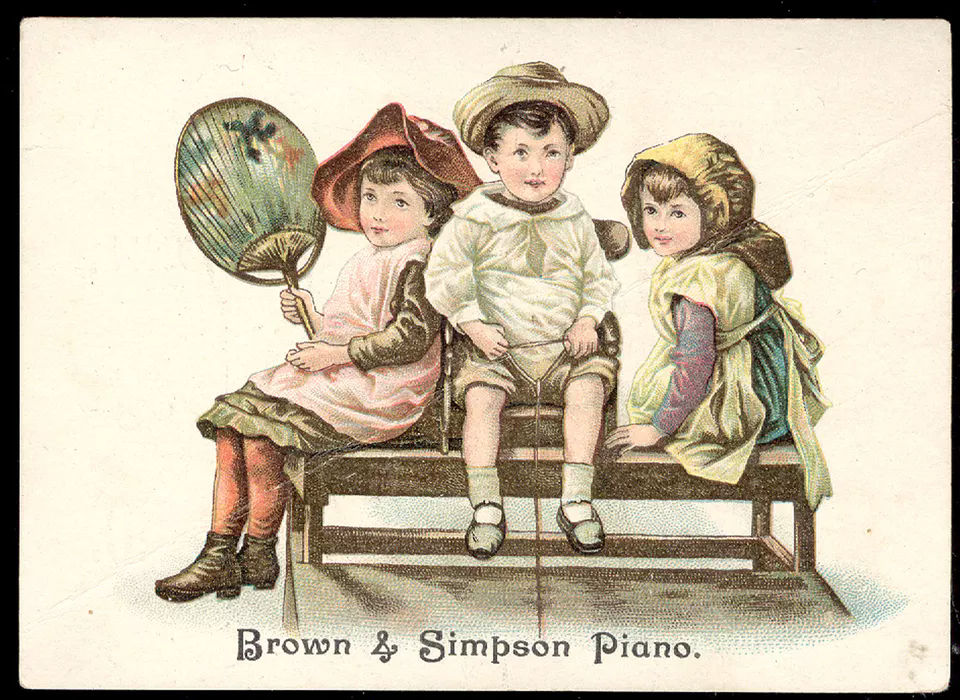
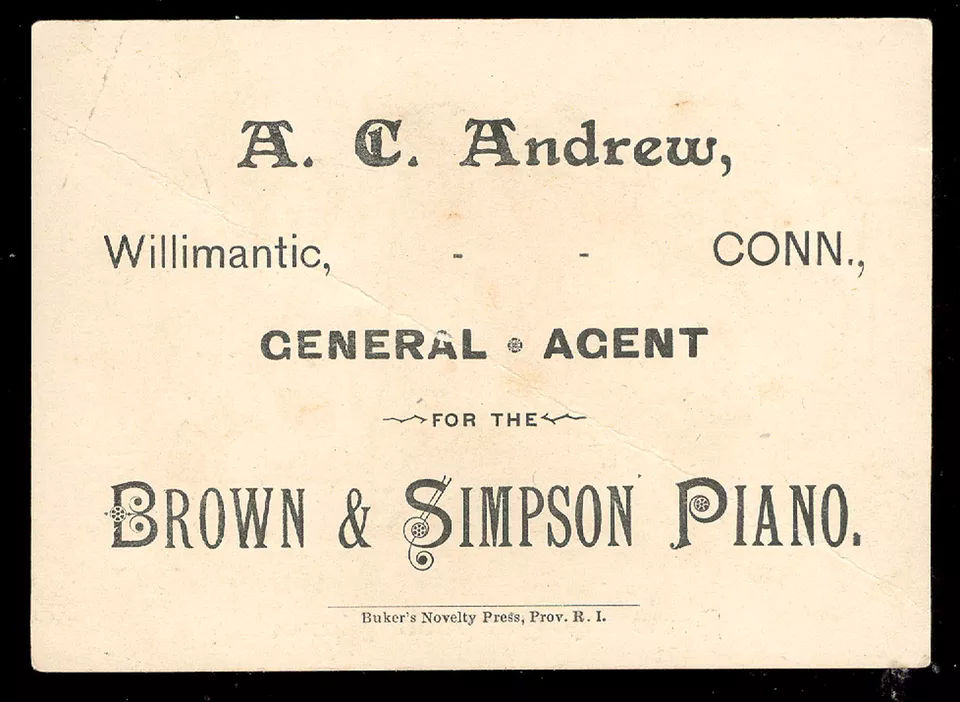 |
|
|
|
|
|
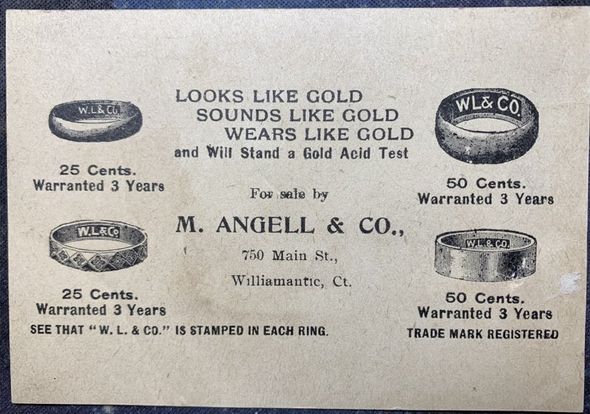 |
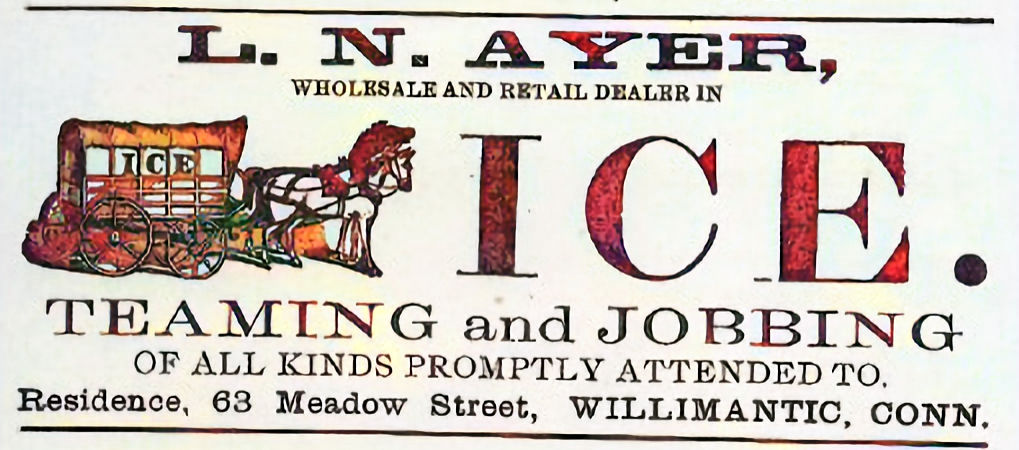 |
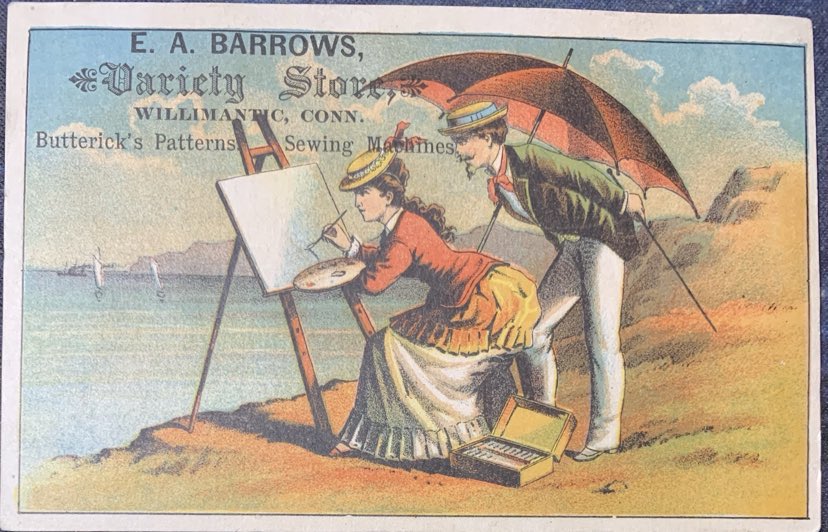
Edwin A Barrow's business was located
at 729 Main Street where
he sold organs and pictures frames as
well as the items mentioned
on his card
|
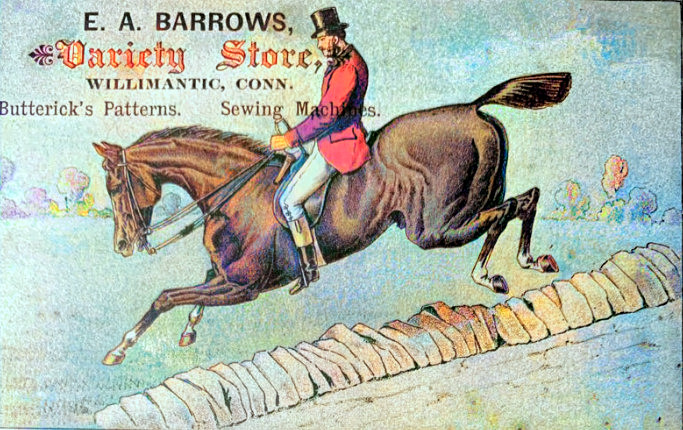 |
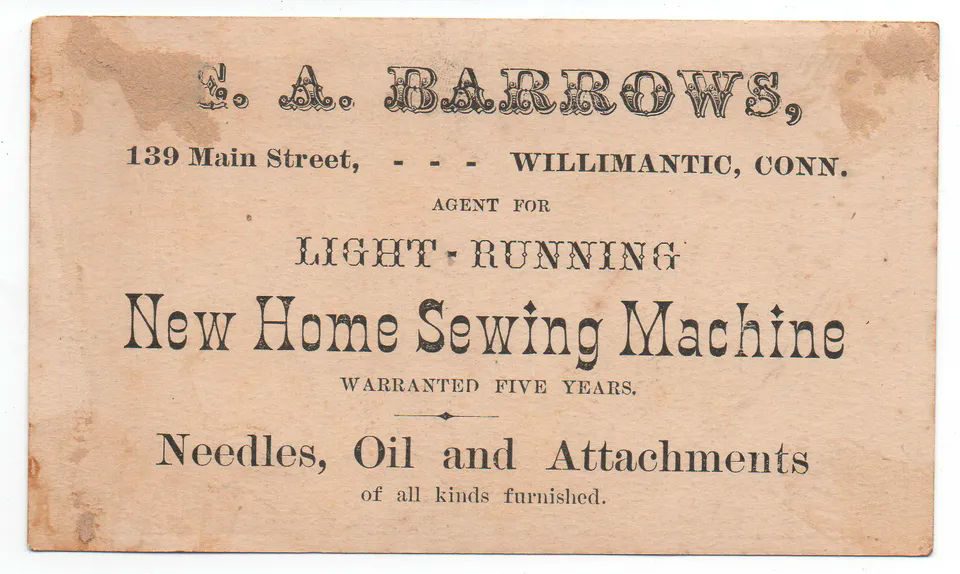 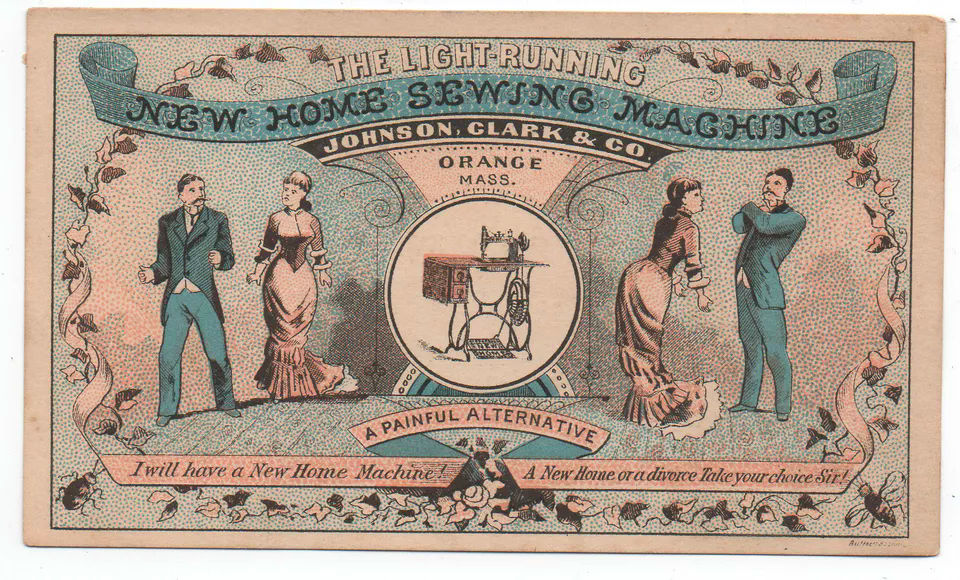 |
|
|
|
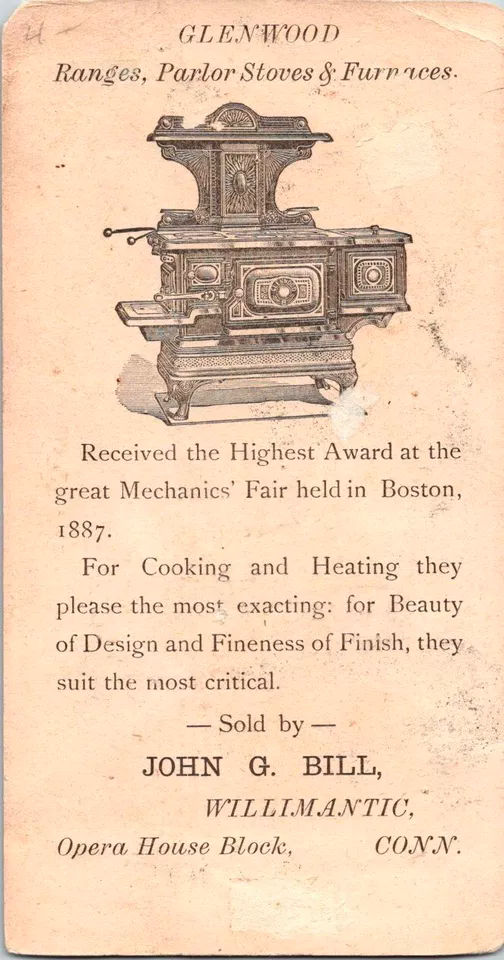 |
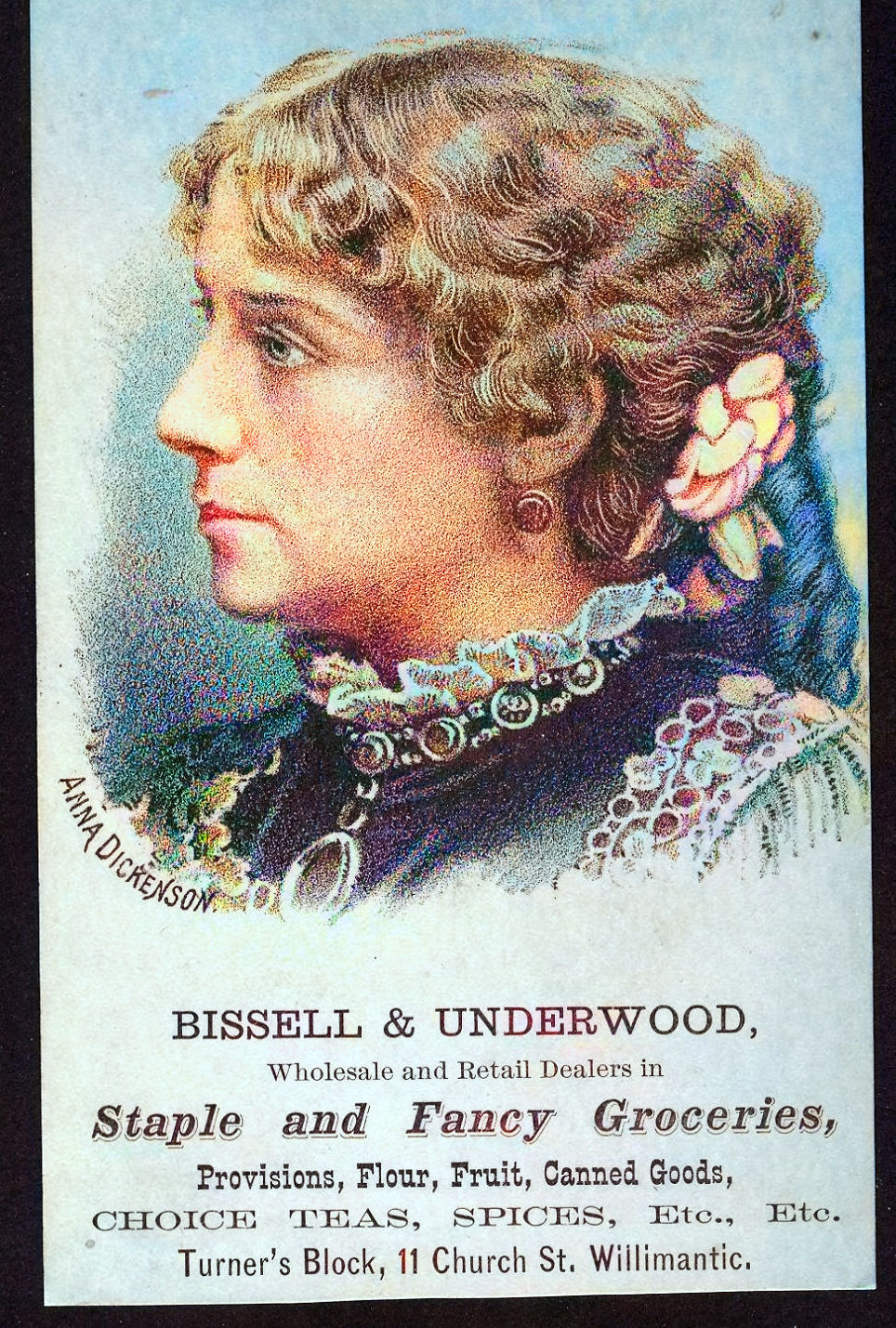 |
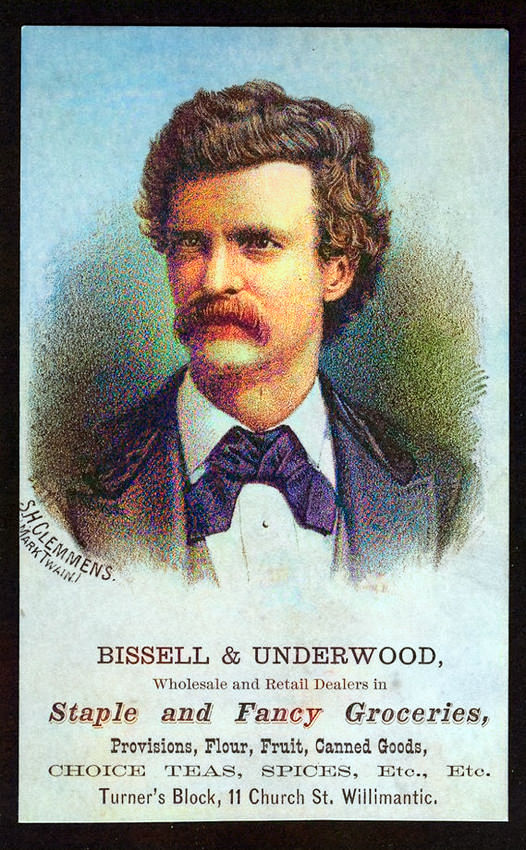 |
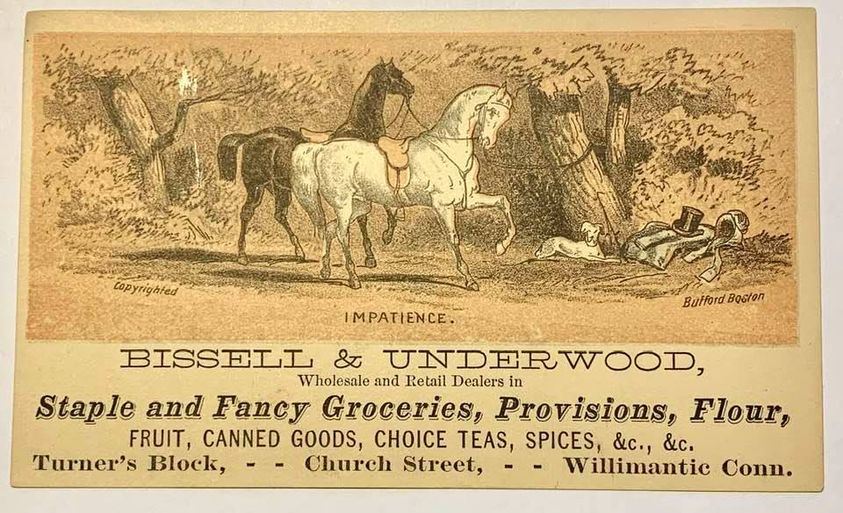 |
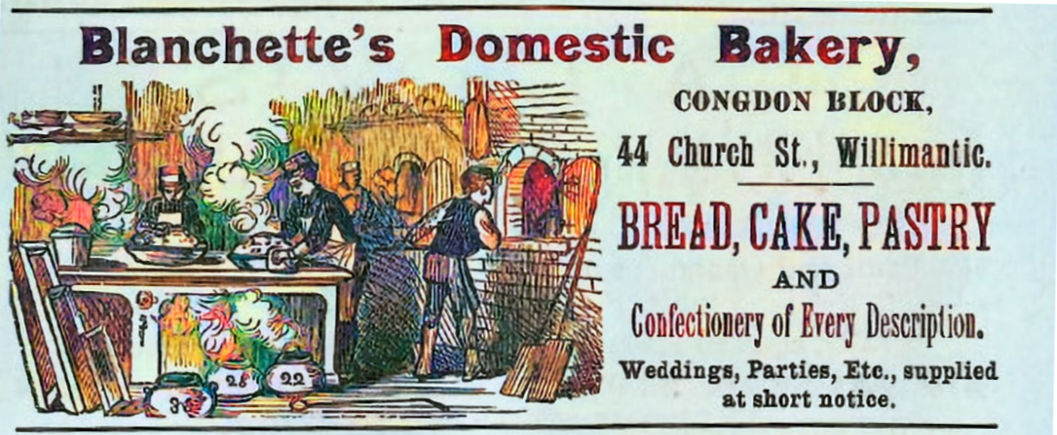 |
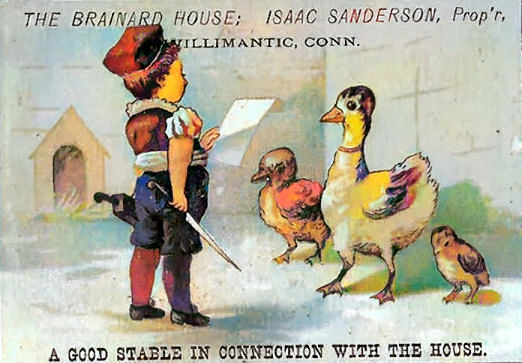
Isaac Sanderson bought the hotel from Henry
Brainard, and ensured that it would be the city’s leading
hotel. He
was said to be, “one of the few men who have the knack of running a
hotel successfully and to the satisfaction of their patrons”.
There were several stores in the hotel building and all
advertised heavily.
|
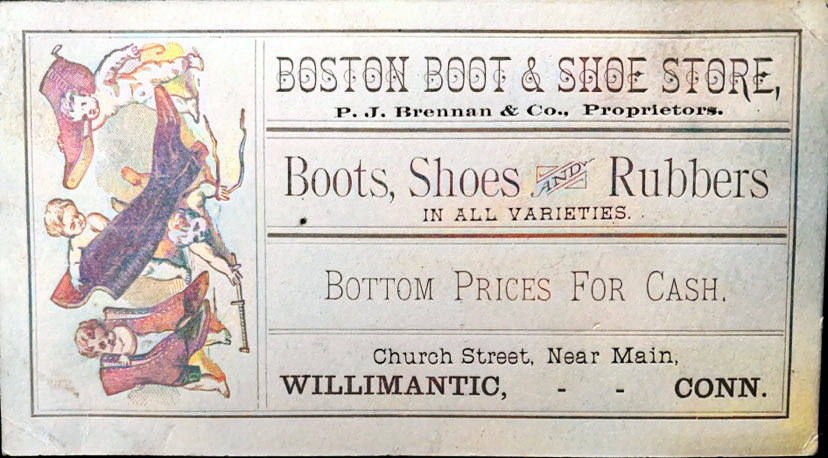 |
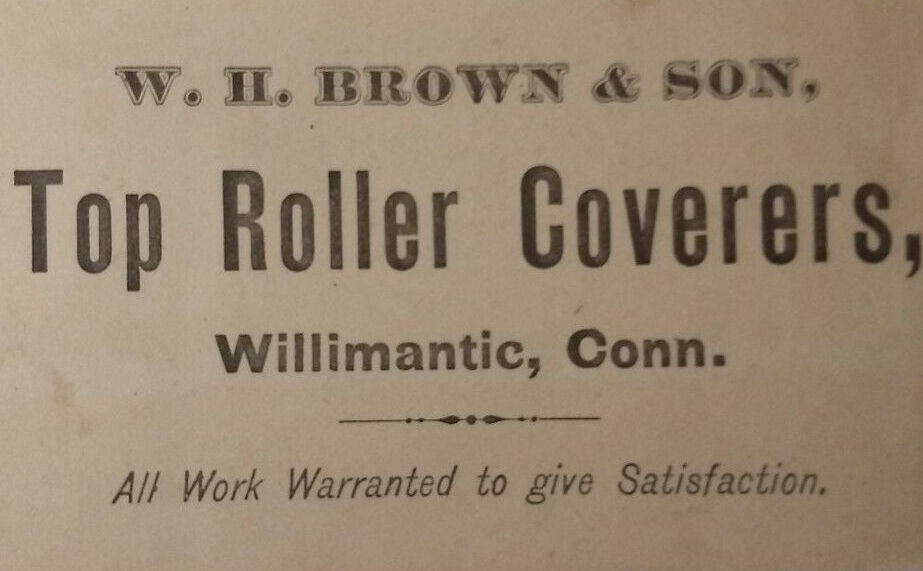 |
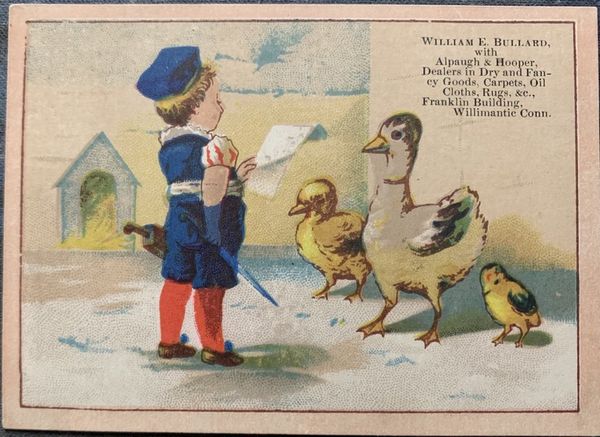 |
|
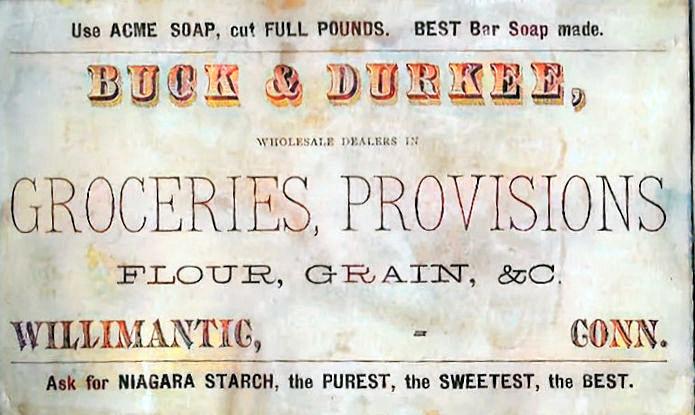
E. A. Buck iV; Co., dealers in Flour,
Grain, Feed, Lumber, etc. Willimantic
Steam Mill, Willimantic.
Conn.—As truly representative a business firm as
can be found in
this city is tliat of E. A. I>uck & Co., for this concern carry
on one of the most important enterprises in town and are
•conceded on
all sides to be the leaders in their special line.
They are millers, and
contractors for all kinds of hard-wood
lumber, railroad ties, etc., and
do both a wholesale and retail
business,' being prepared to furnish
anything in their line in
quantities to suit at positively bottom prices.
Of course in
order to do this they must have unsurpassed facilities
and these
they most cerState. _ tainly possess, their establishment
being
one of the most conveniently arranged of the kind in the It is
located
at No. 89 Main street, and comprises two mills, of the
dimensions of
.30 x 95 and 30 X 65 respectively. The premises
are directly on the
line of the railroad, so that goods can be
received and shipped at a
mininuiln of trouble and expense. The
machinery in use is •driven by
steam-power and is of the
latestimproved type, the meal produced being
made from carefully selected material and having a very high
reputation
in the market. Seed oats, grass seed, salt,
fertilizers, etc., are also dealt
in, together with hard-wood
lumber, railroad ties, etc., these latter
commodities being
furnished in extensive lots at very short notice.
The firm is
con.stituted of Mr. p]. A. Buck and his son, Mr. W. A. Buck,
both of whom are natives of Ashford, Conn. The senior partner
has held
about all the town offices, and has also served as
State senator,
representative and treasurer, holding the latter
position from 1876 to
1S78. The firm are constantly enlarging
their operations, and in addition
to their VV illimantic
establishment they carry on a hardware store at
Stafford
Springs, Conn., and at l^almer, Mass., bemg engaged in the
oil
business also in the latter town.
|
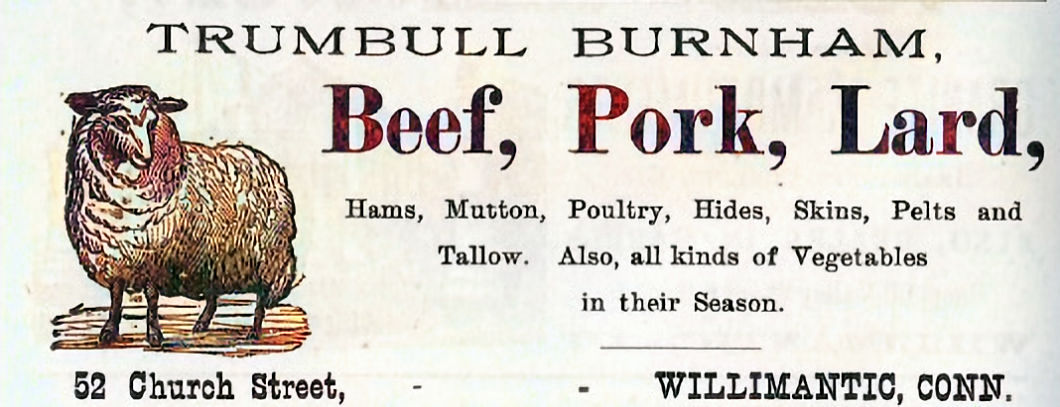 |
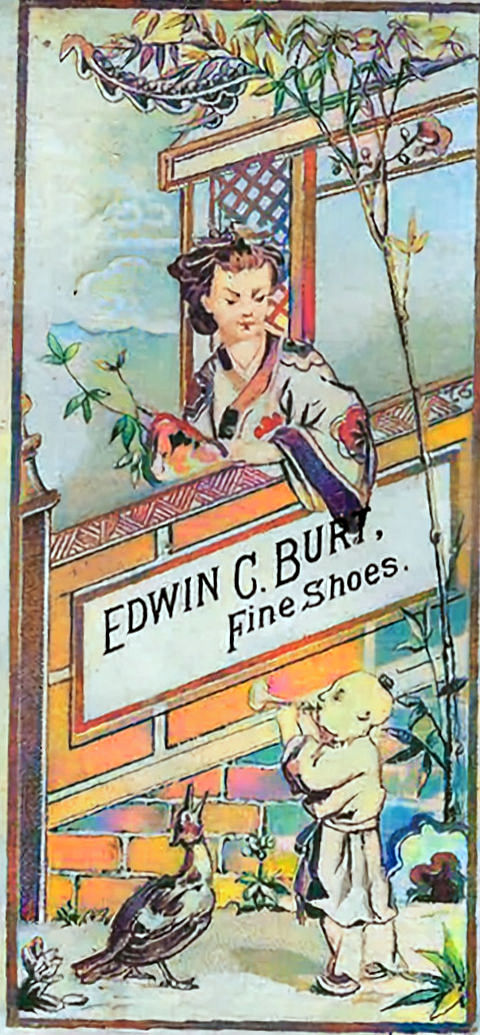 |
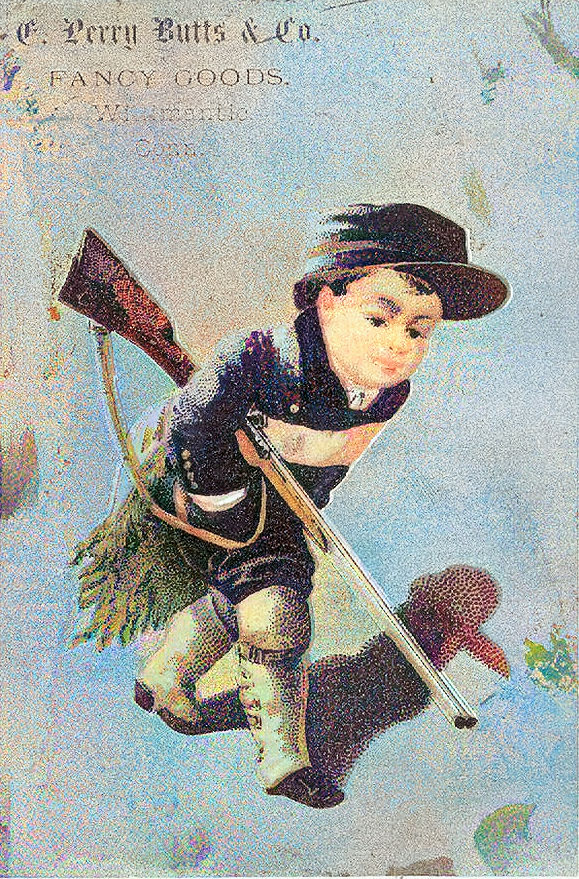
|
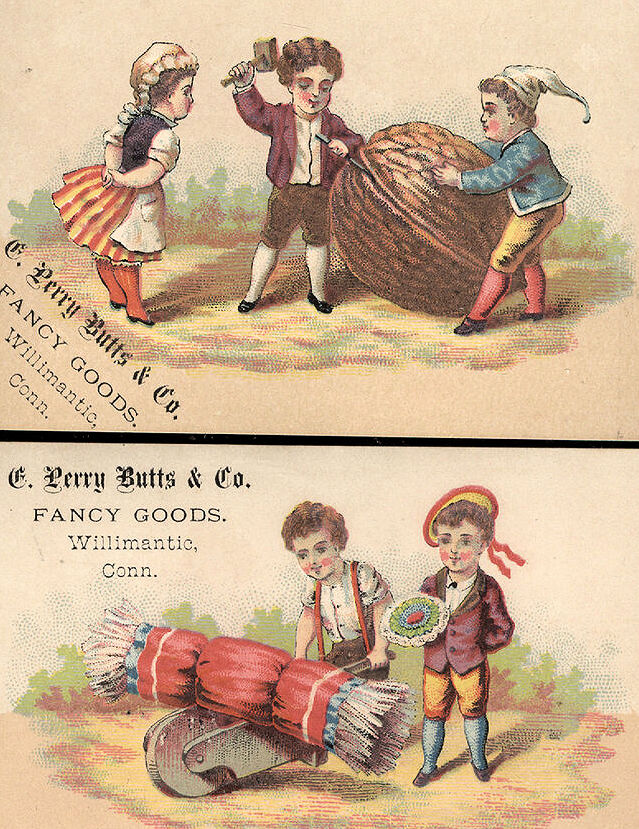 |
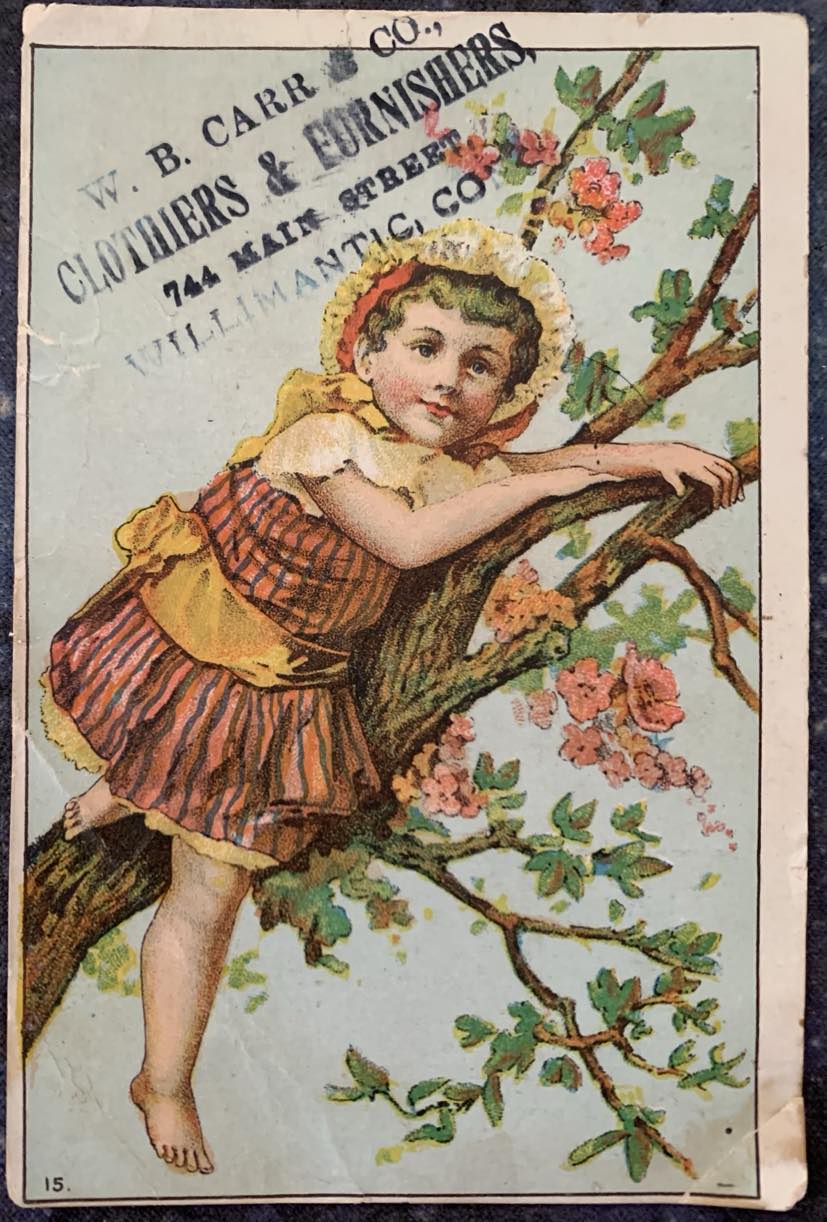
The company sold “high quality men’s clothes, hats and furnishings” |
|
|
|
|
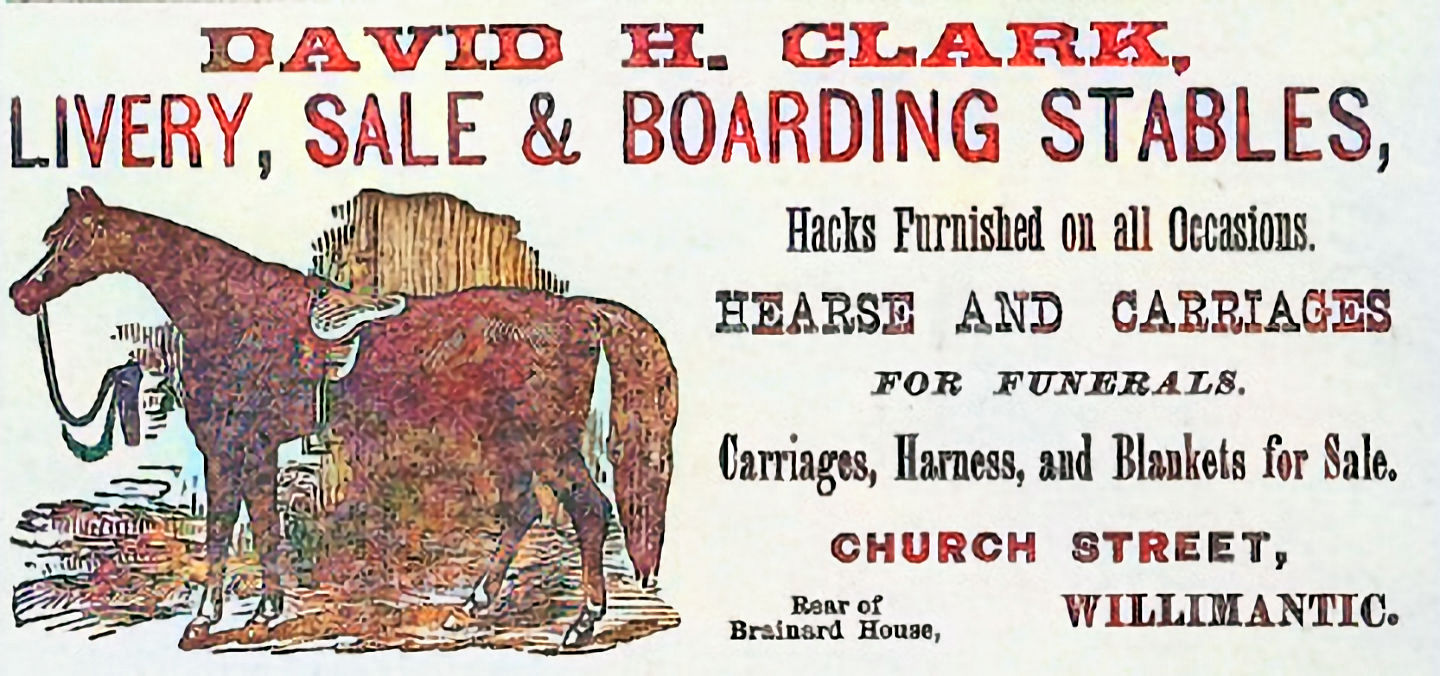 |
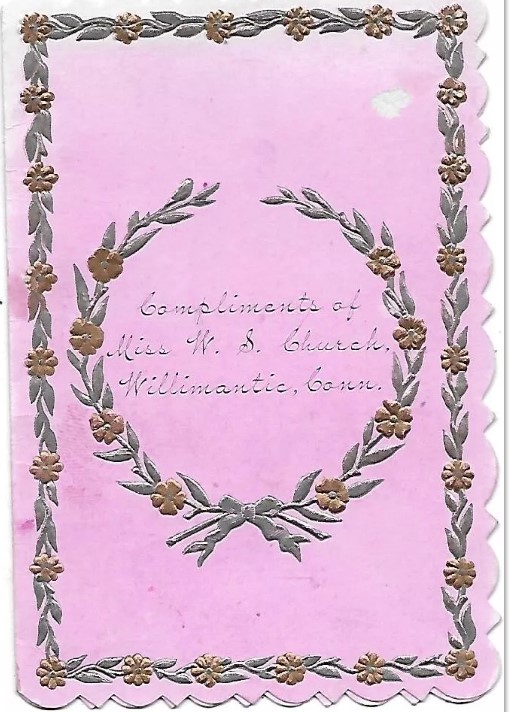 |
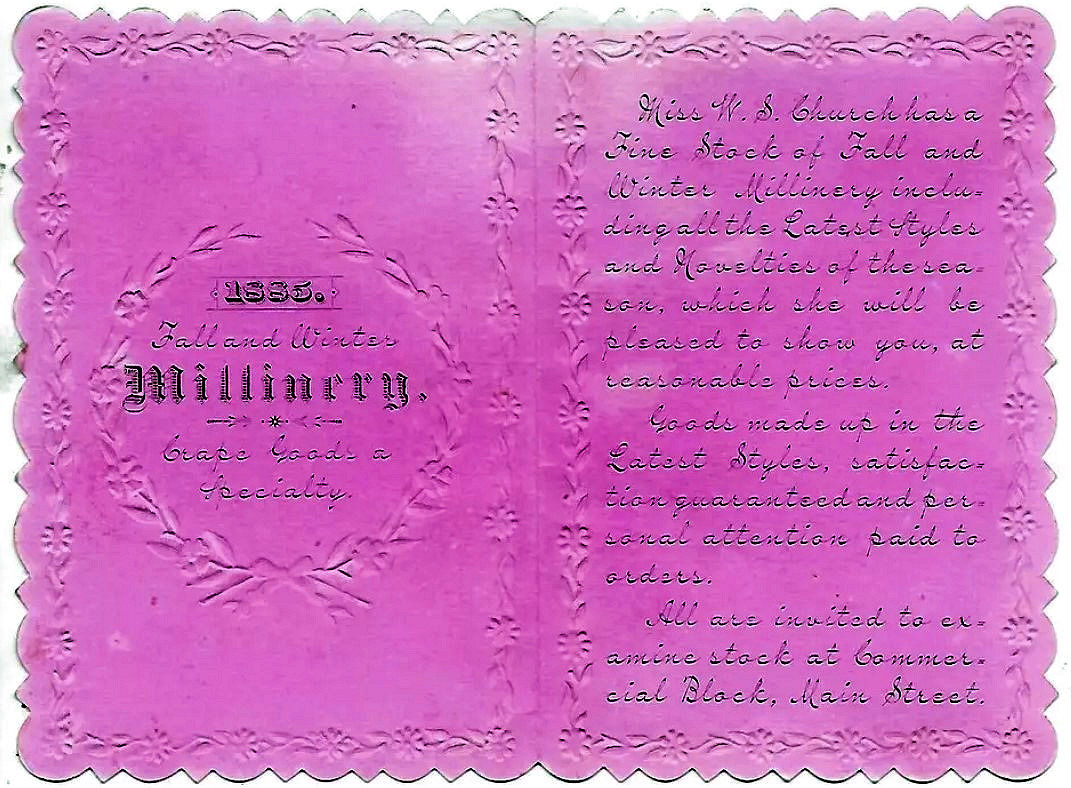 |
|
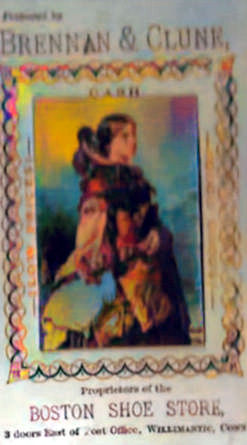 James
Clune’s “Boston Shoe Store”, James
Clune’s “Boston Shoe Store”,
existed for only a short time
in the 1880s
and 1890s in the McAvoy Block on Main
Street and
was a fairly small operation.
It sold “beaver and rubber goods”,
boots,
shoes, and slippers and claimed that,
“everything
is first-class Foot Wear to be
had at the lowest prices”. |
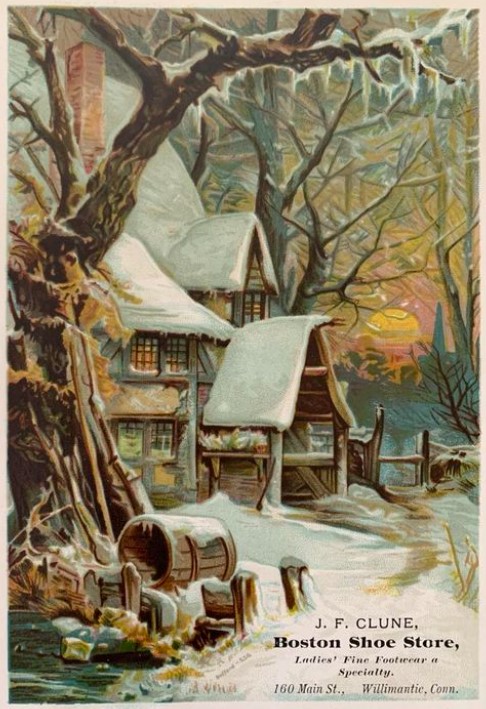 |
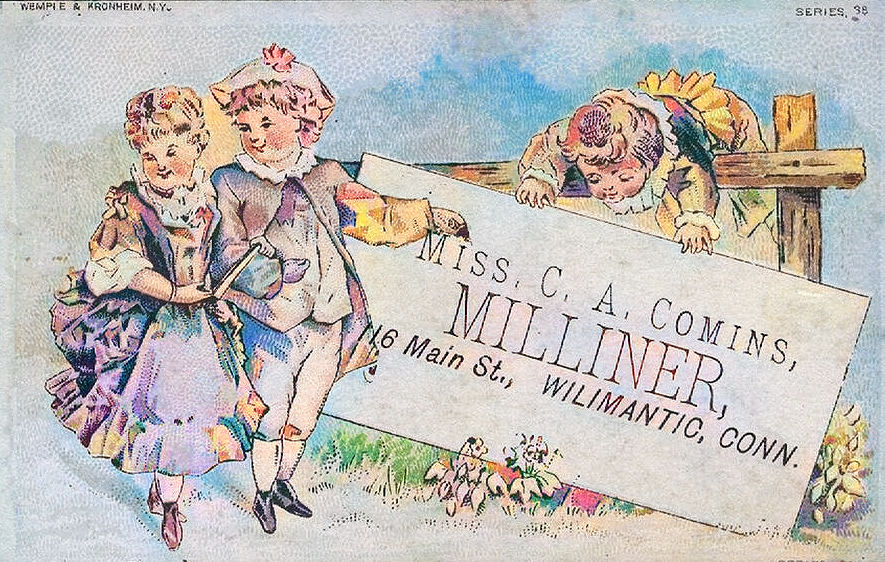
|
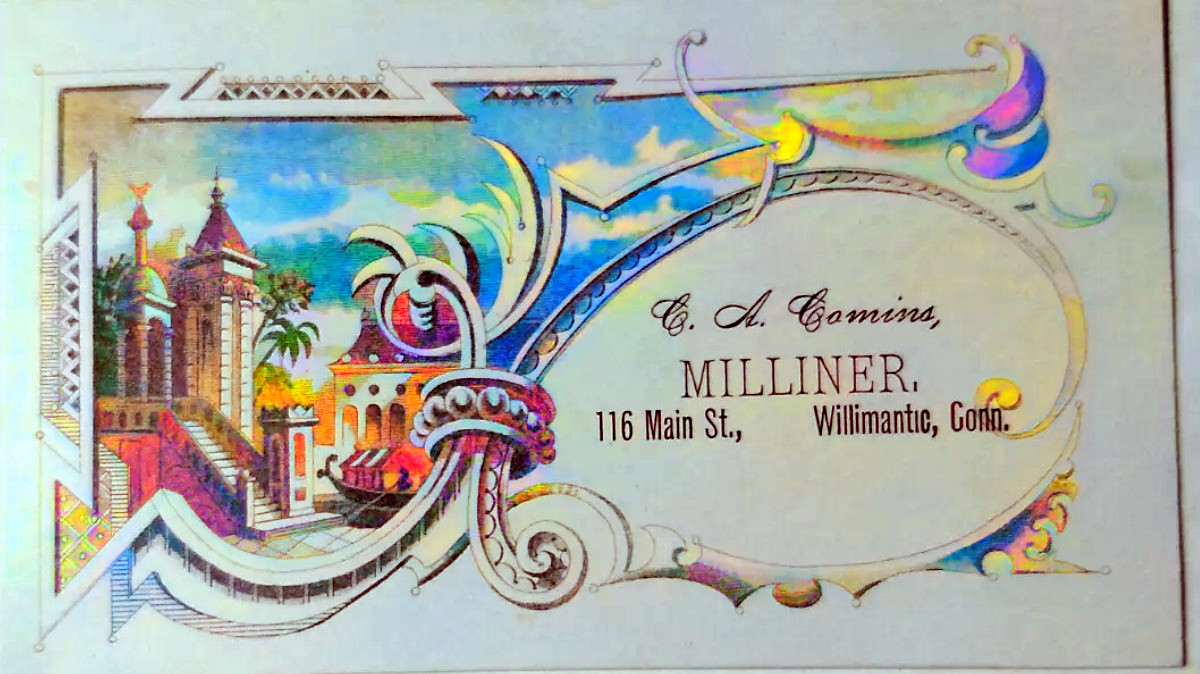 |
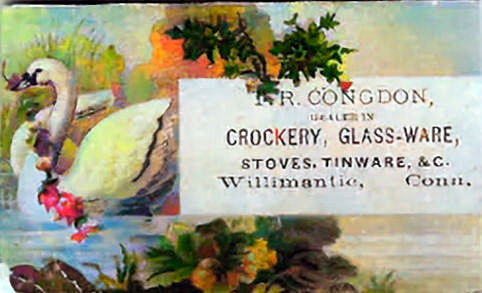
810 Main Street |
|
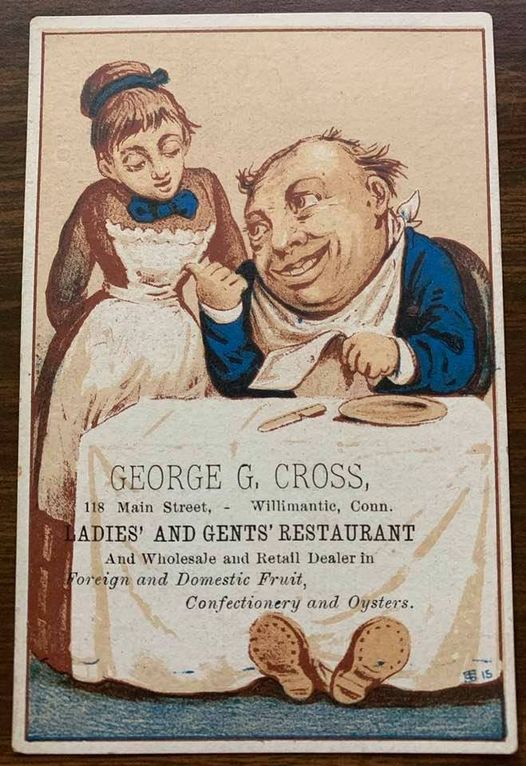 |
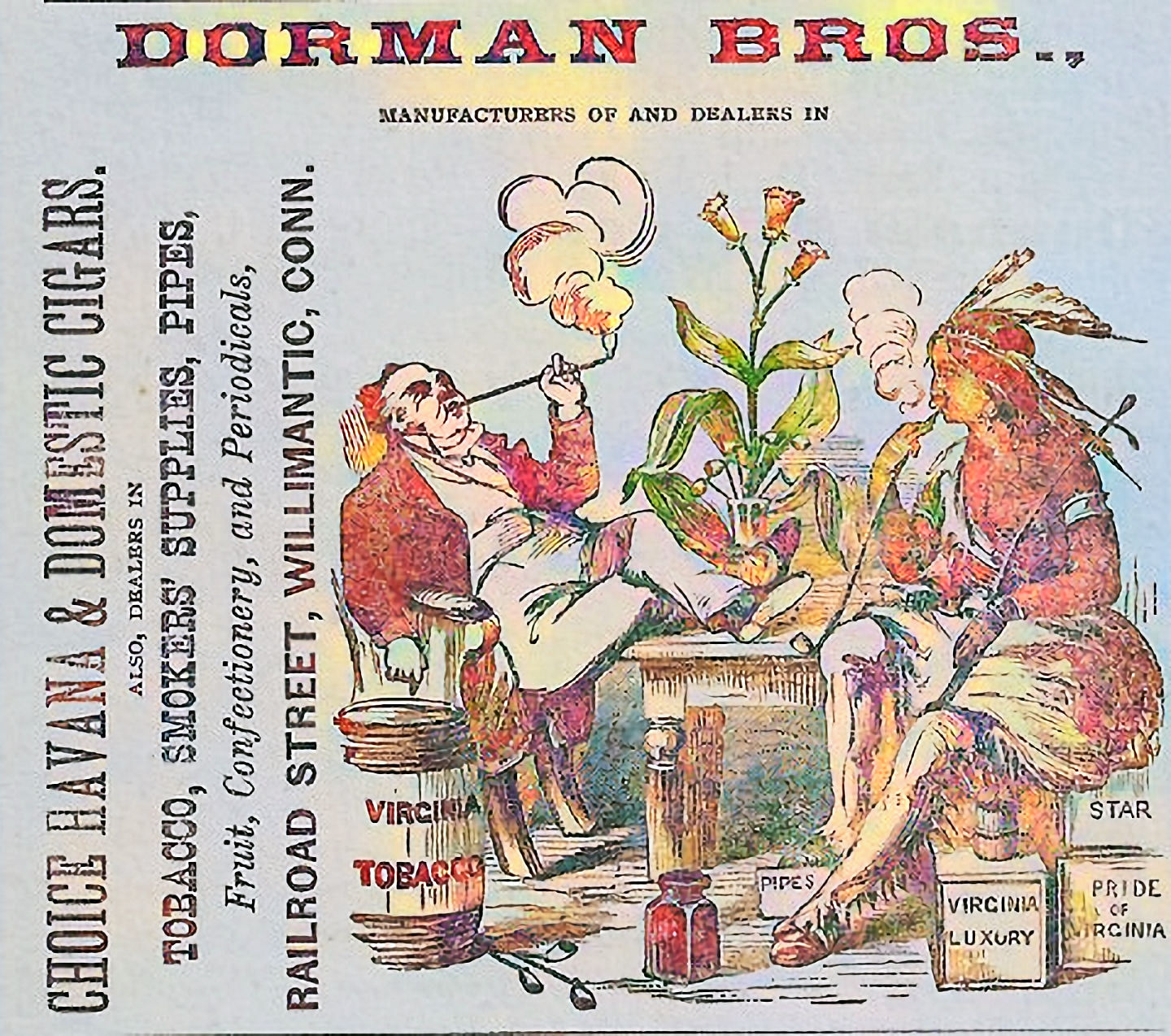 |
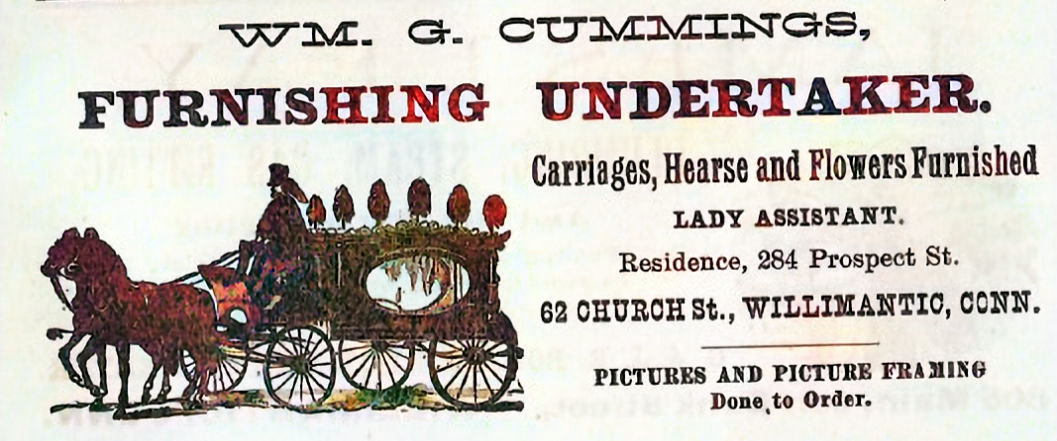 |
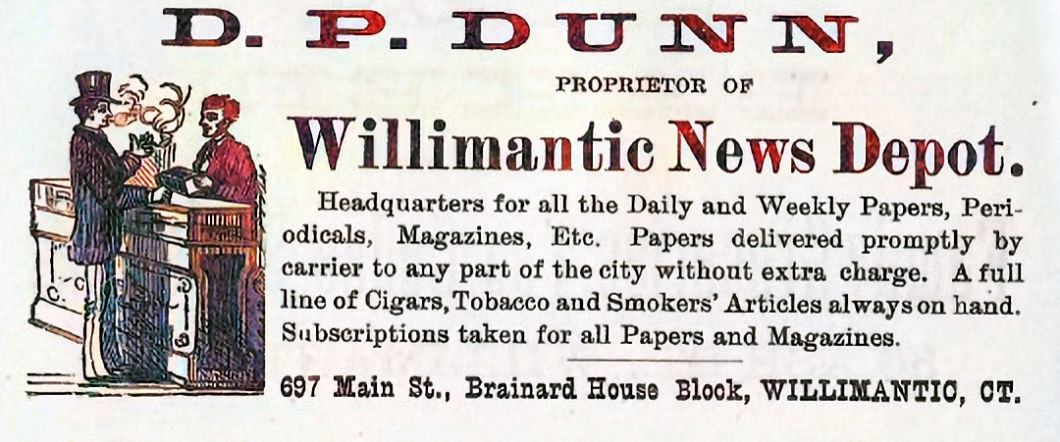 |
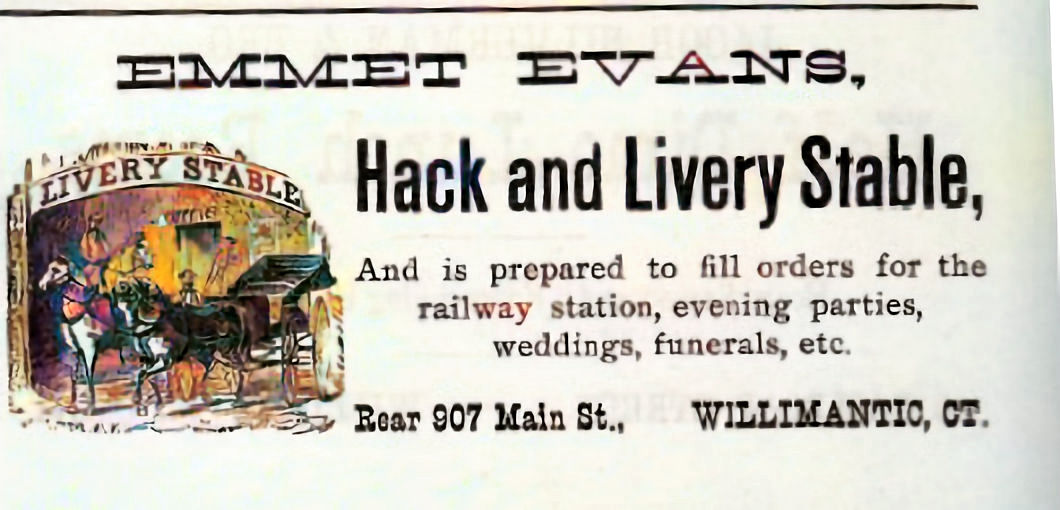 |
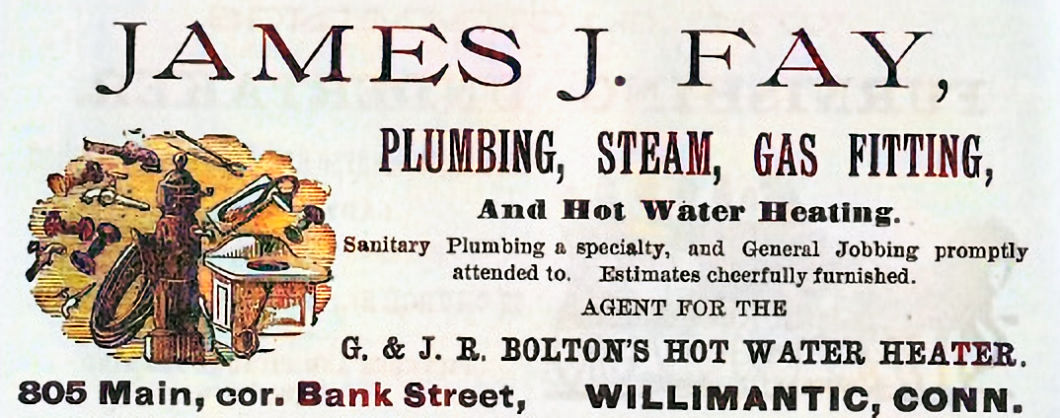 |
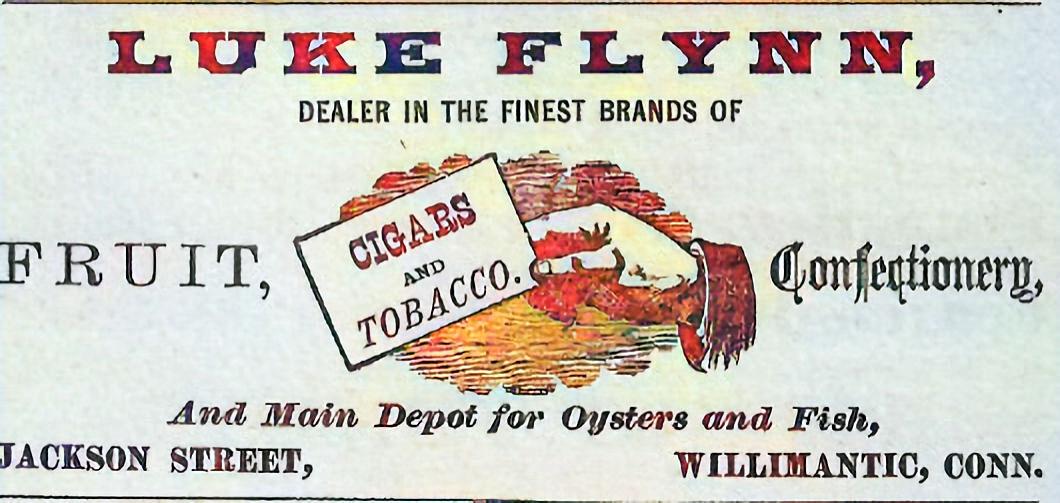 |
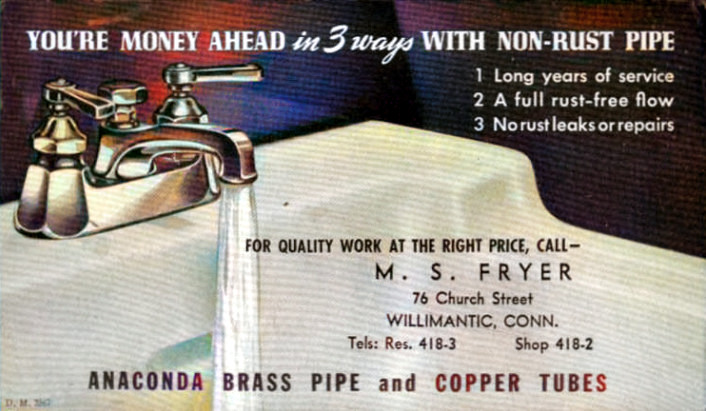 |
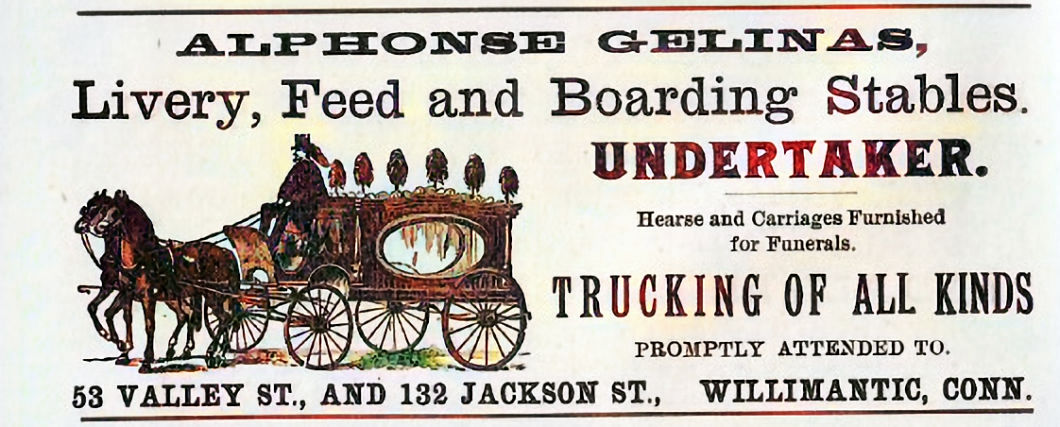 |
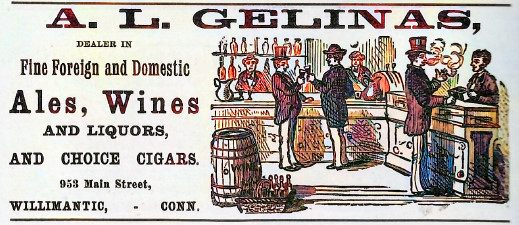 |
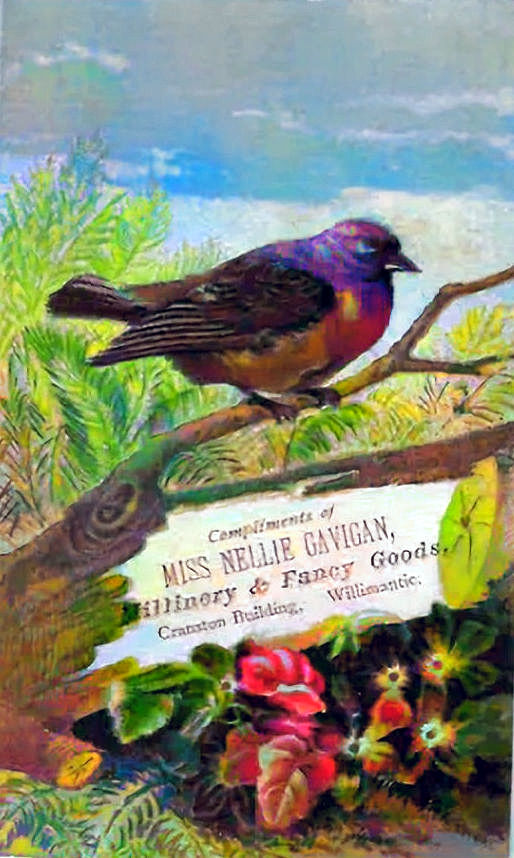 |
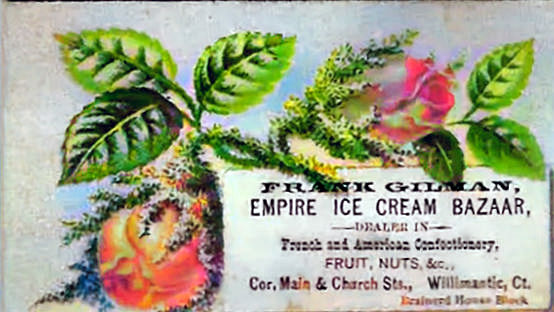
Gilman’s Ice Cream parlor was located in the Turner Block It
advertised.
“Lunch rooms on European plan.
Fruit and Confectionery of all kinds
constantly on hand. A large stock of cigars and tobacco. Our pure
Havana-filled Five Cent Cigars are the best in town.
Fresh sweet milk by the quart. Milk brought in every morning and night. |
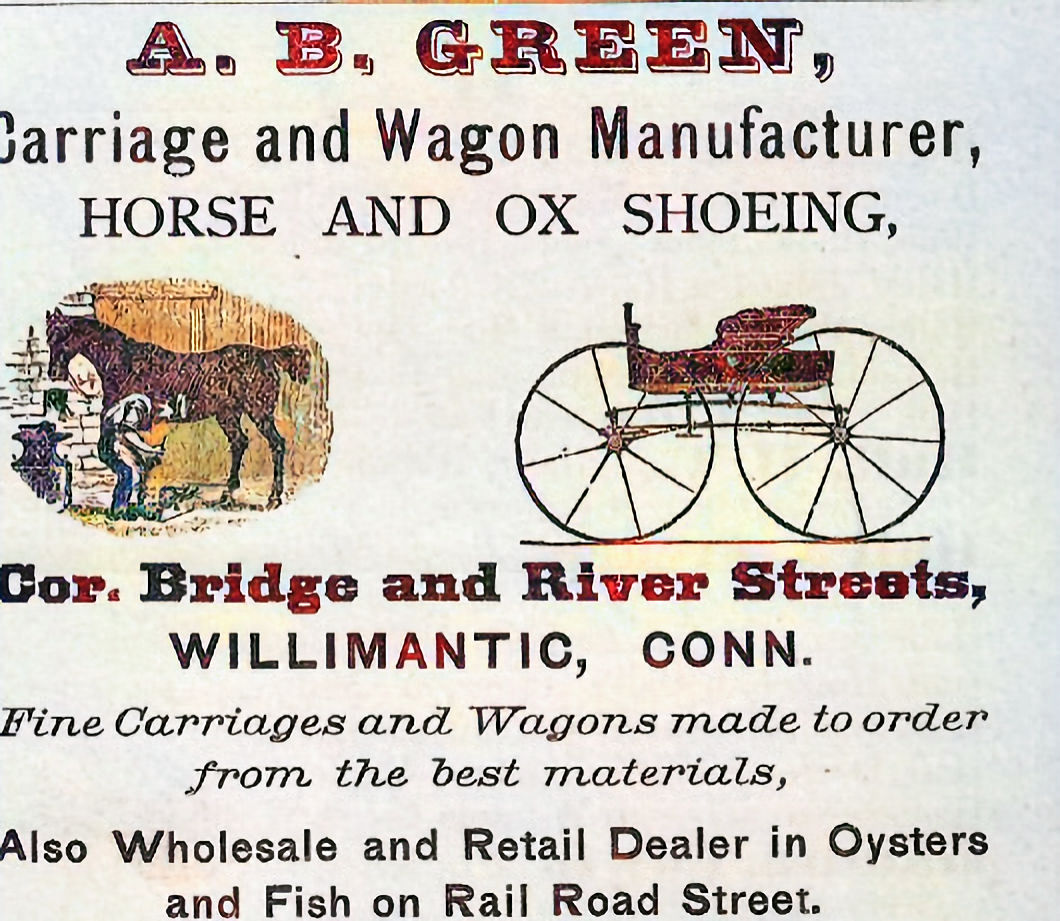 |
 |
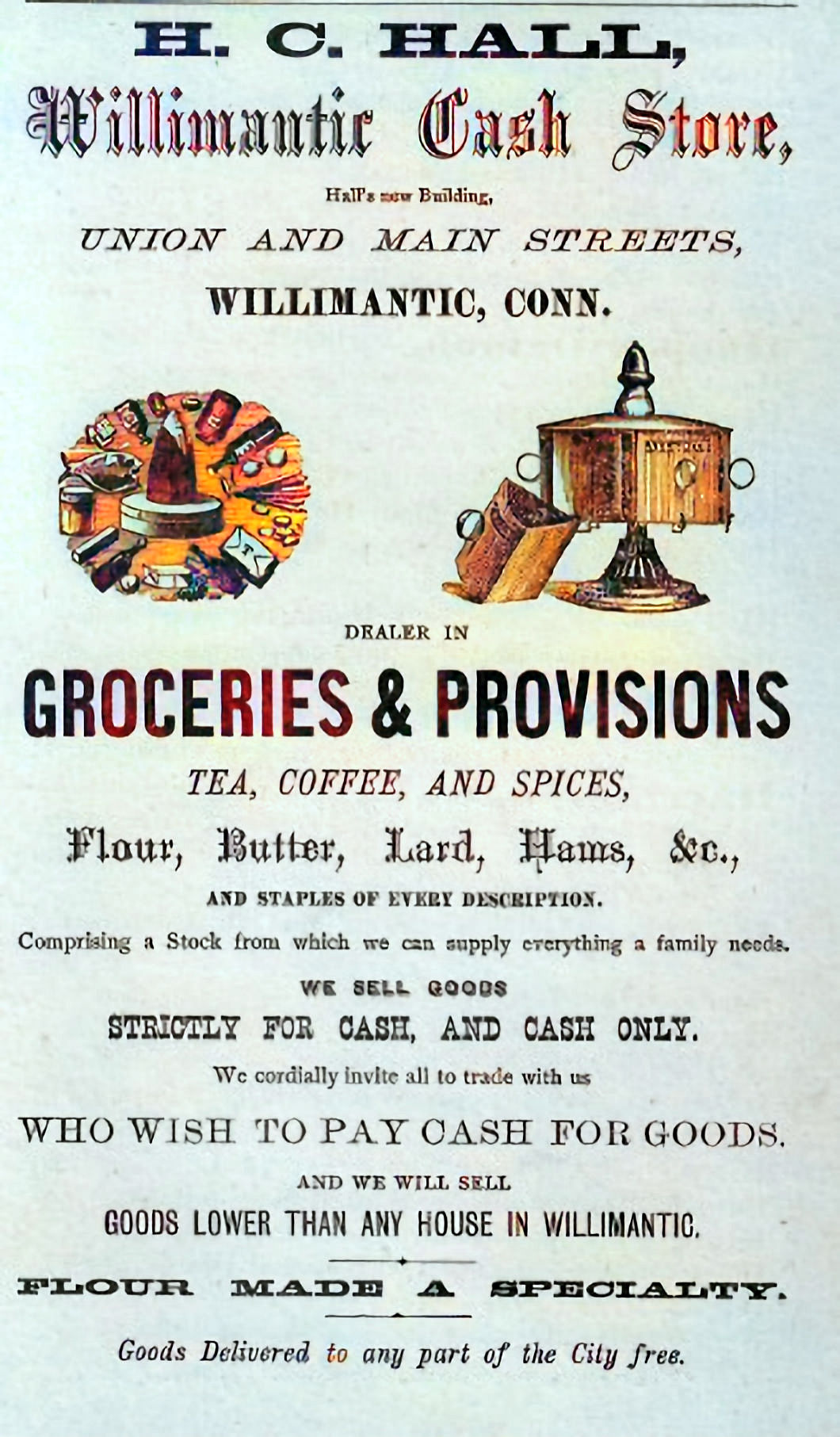 |
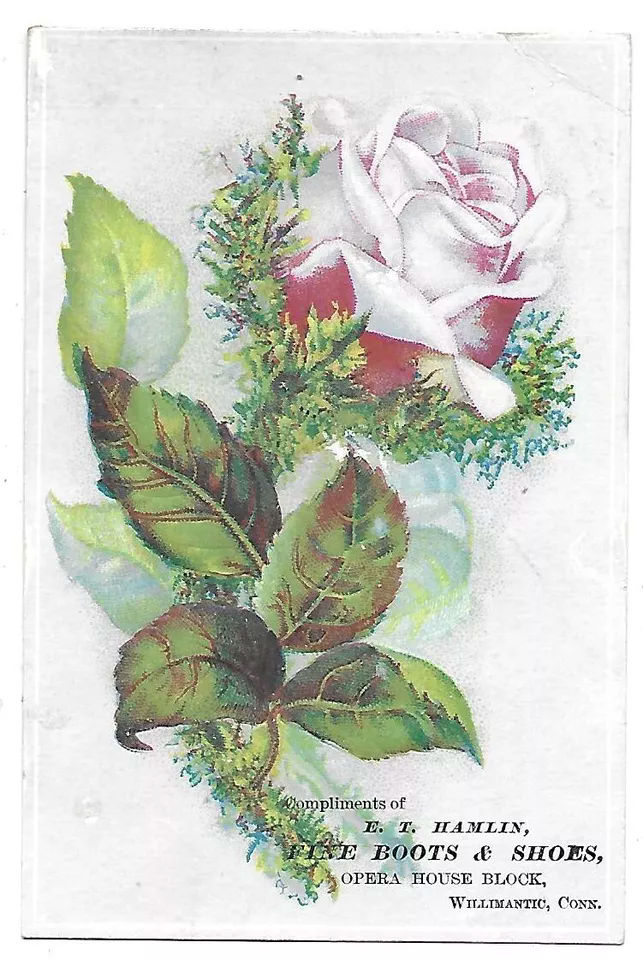 |
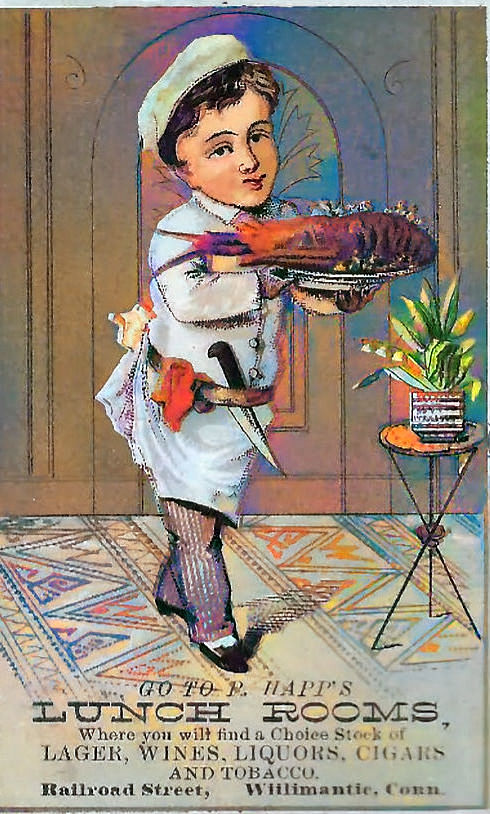 |
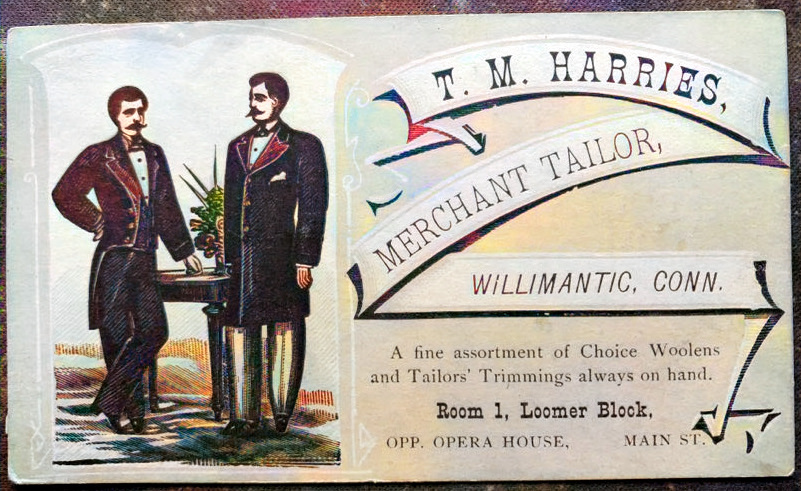 |
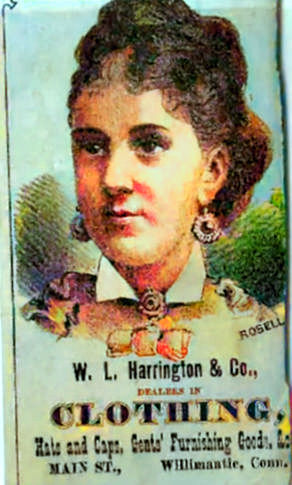 658 Main Street 658 Main Street |
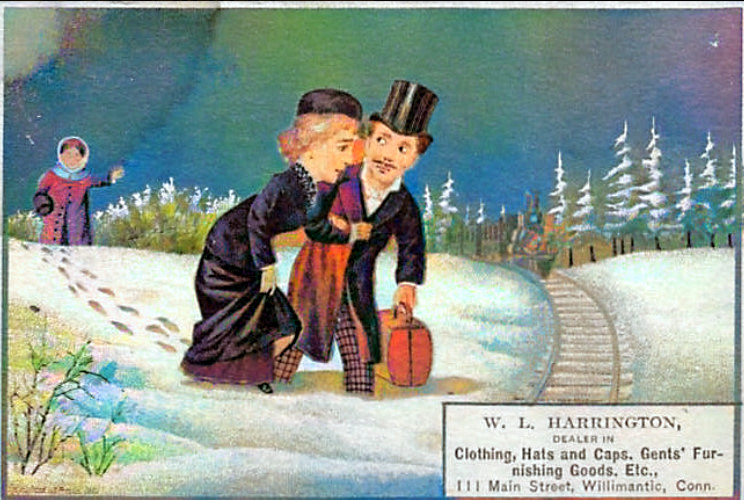
 |
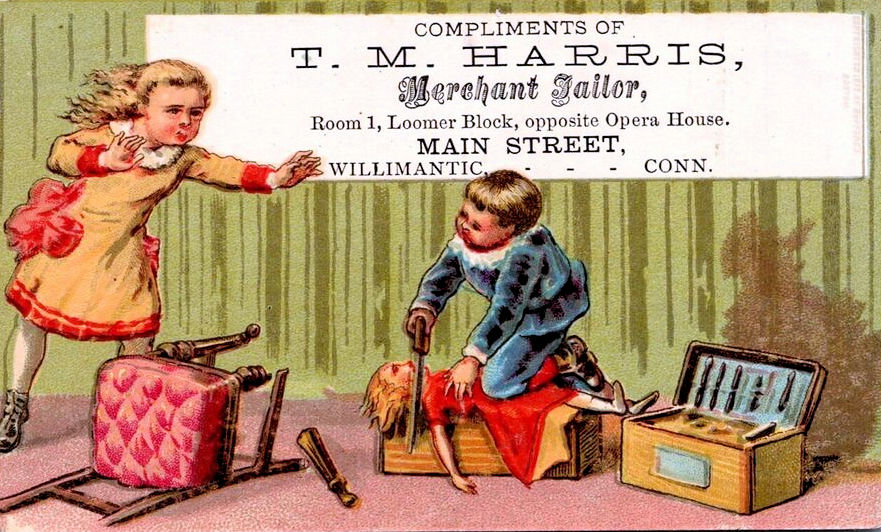 |
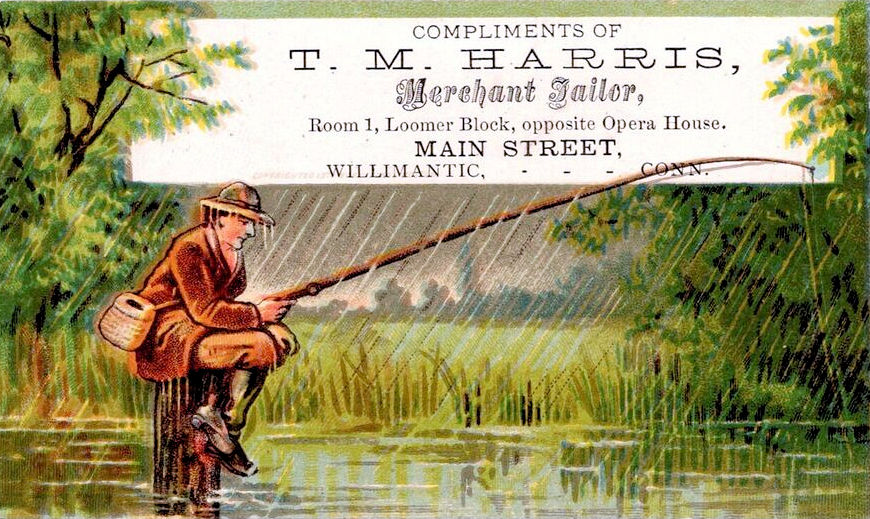 |
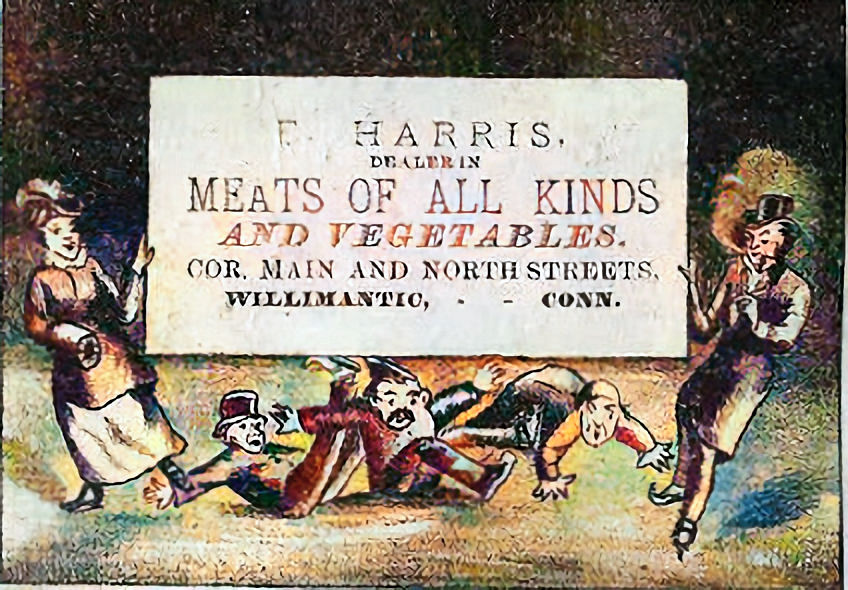 |
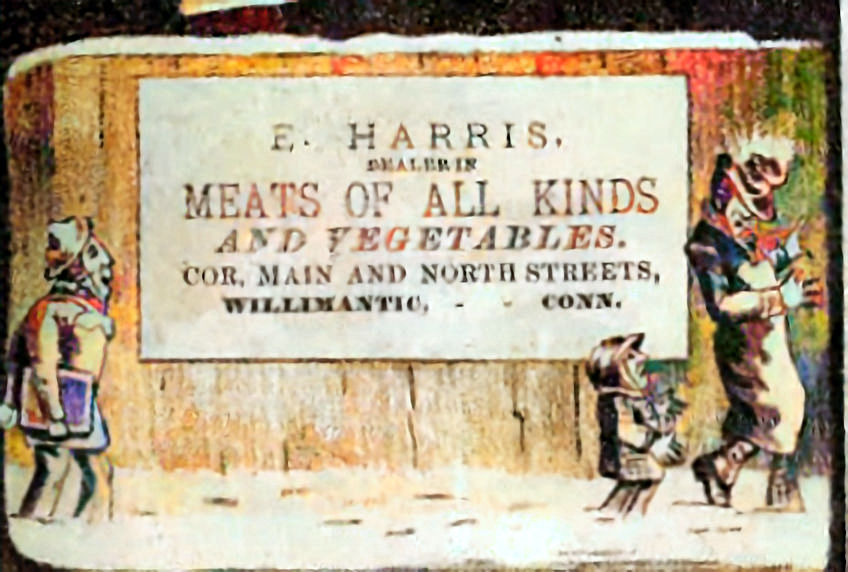 |
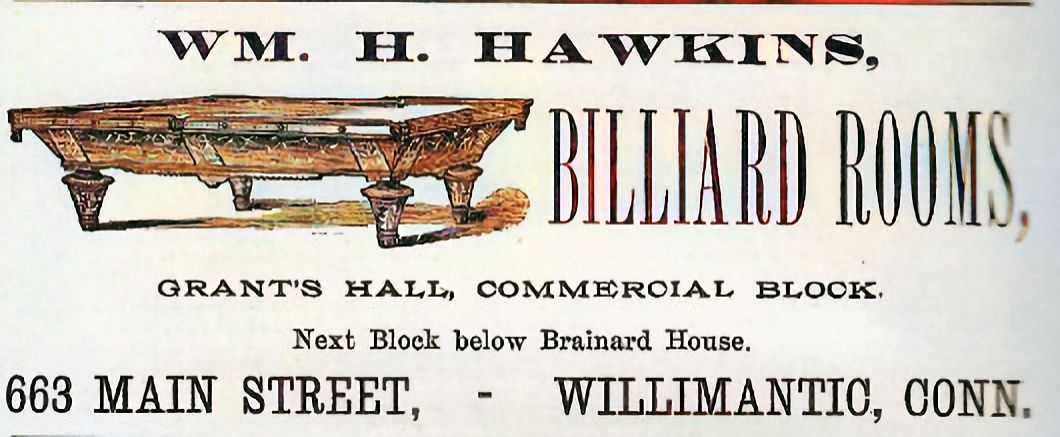 |
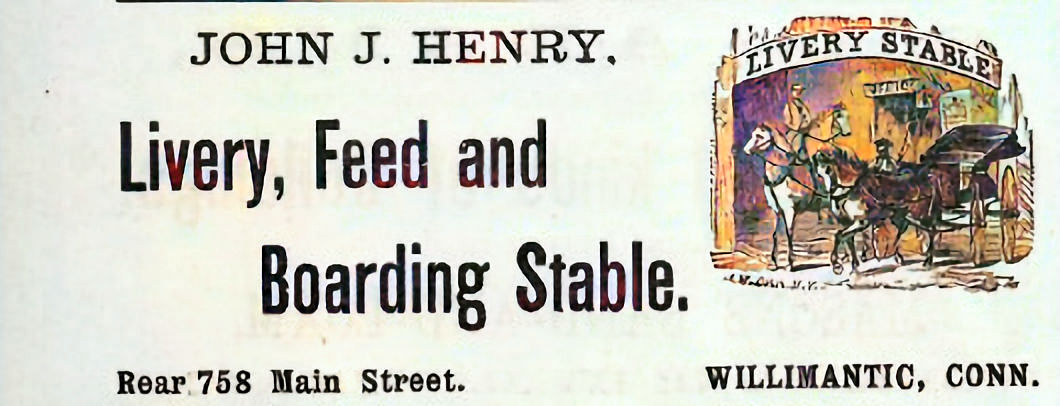 |
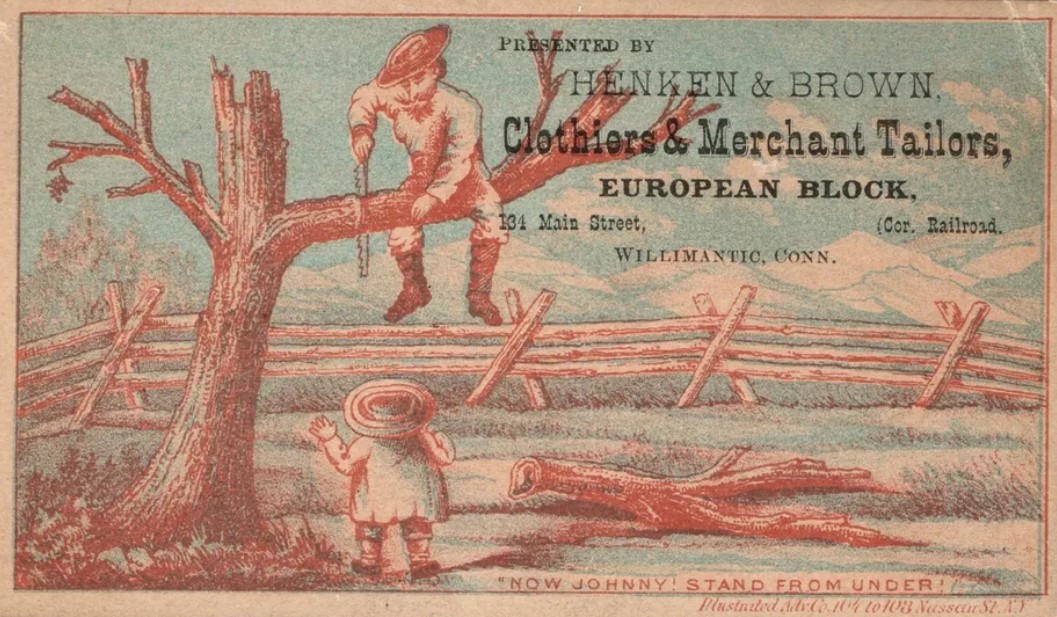
|
|
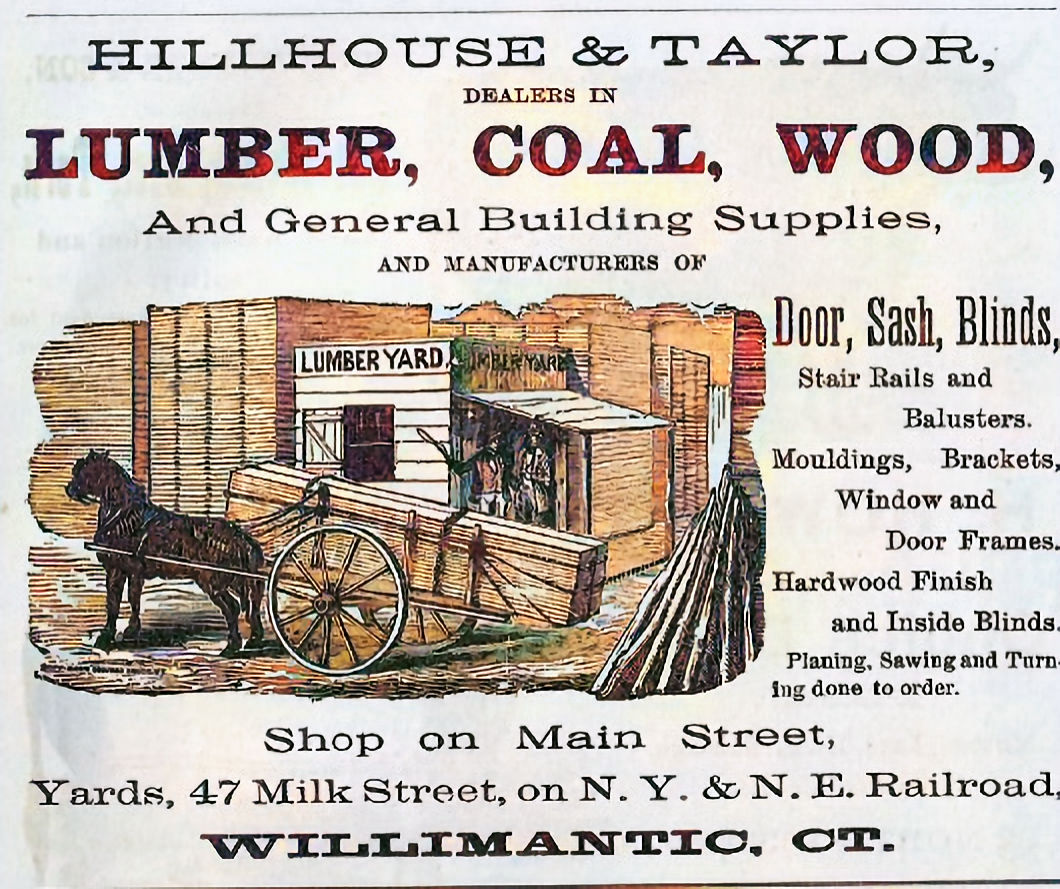 |
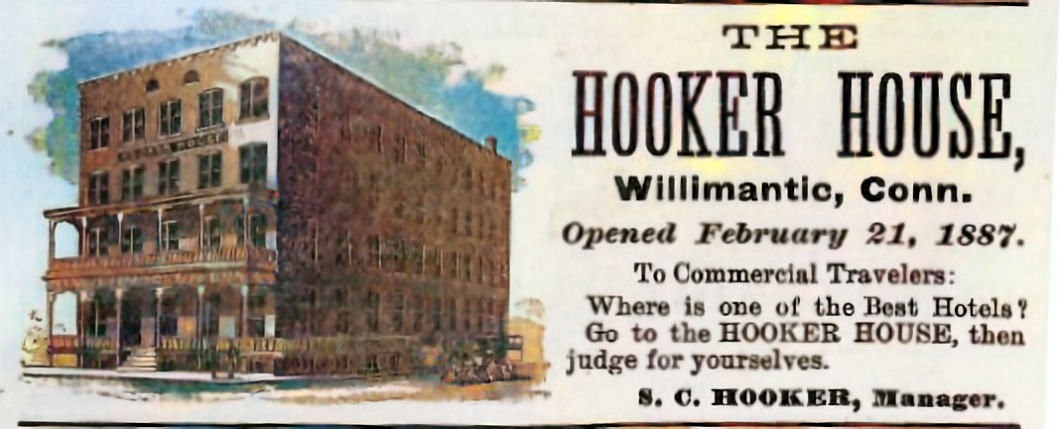 |
|
|
|
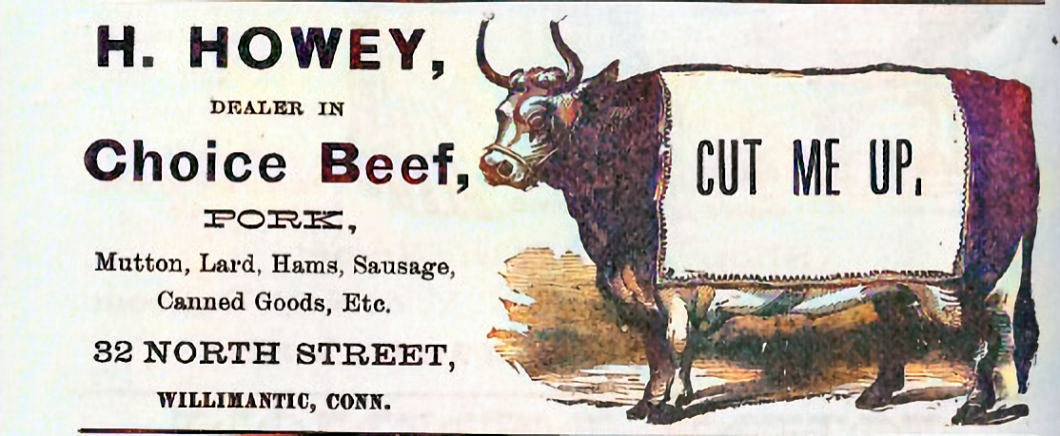 |
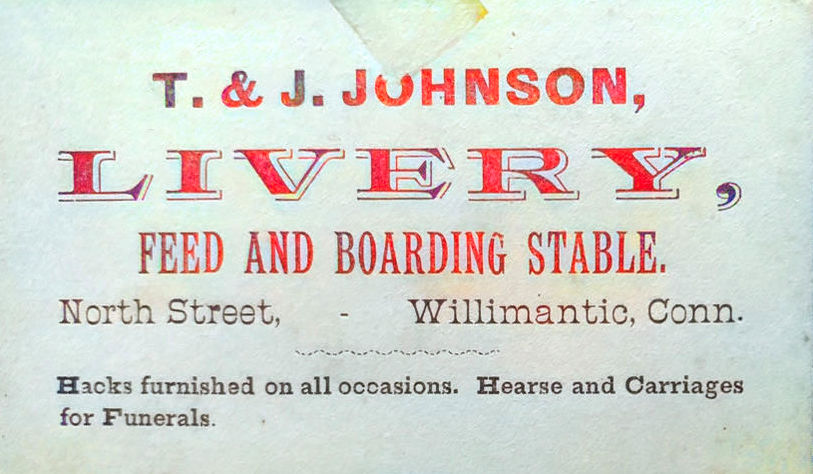 |
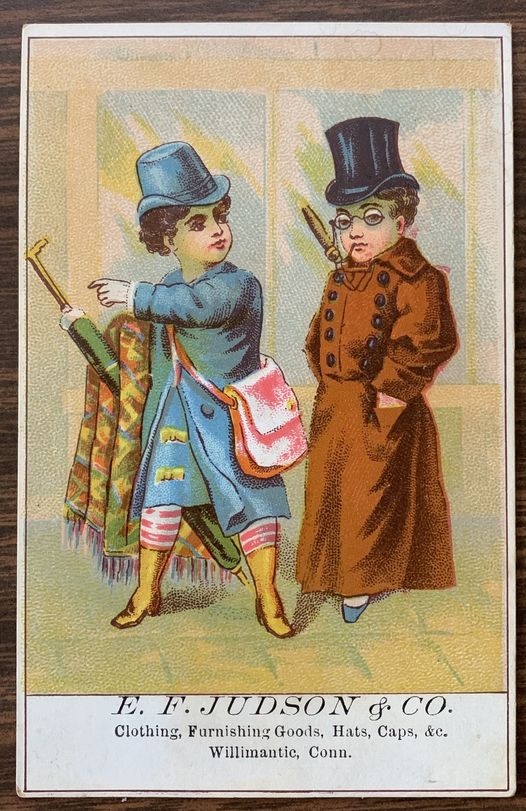 |
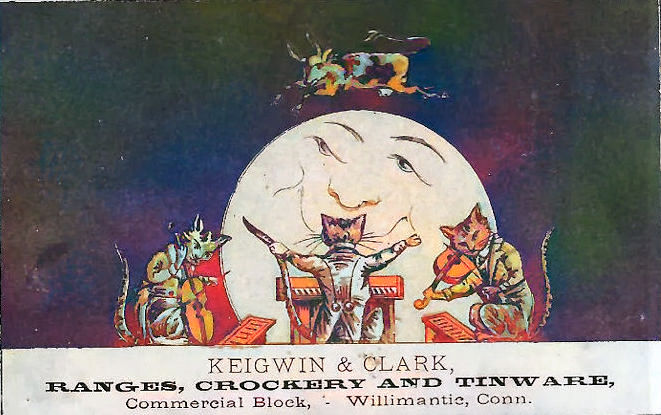 |
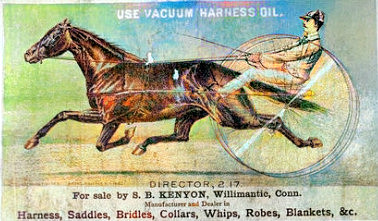 |
|
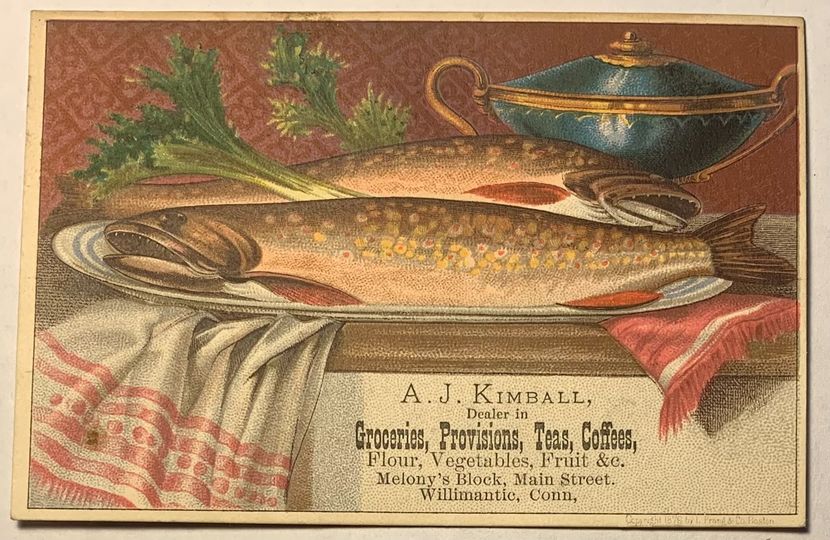 |
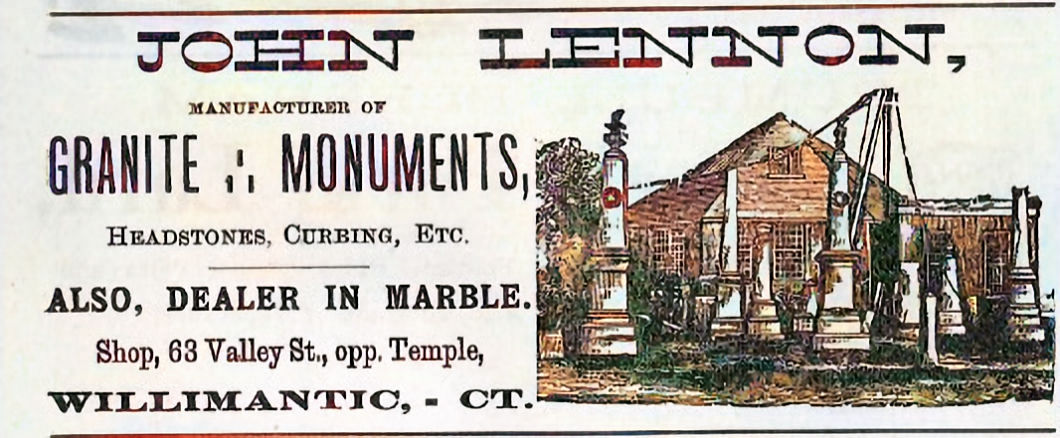 |
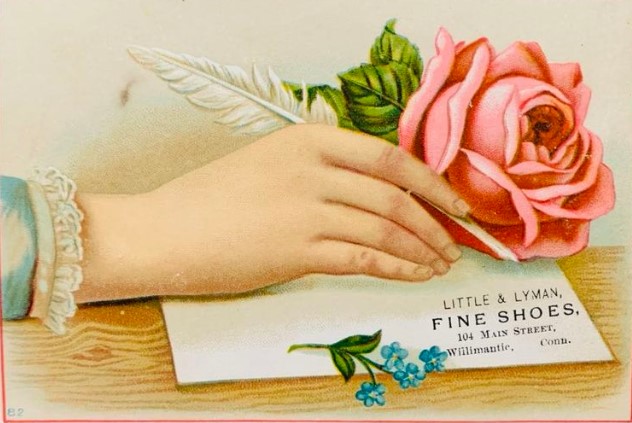 |
|
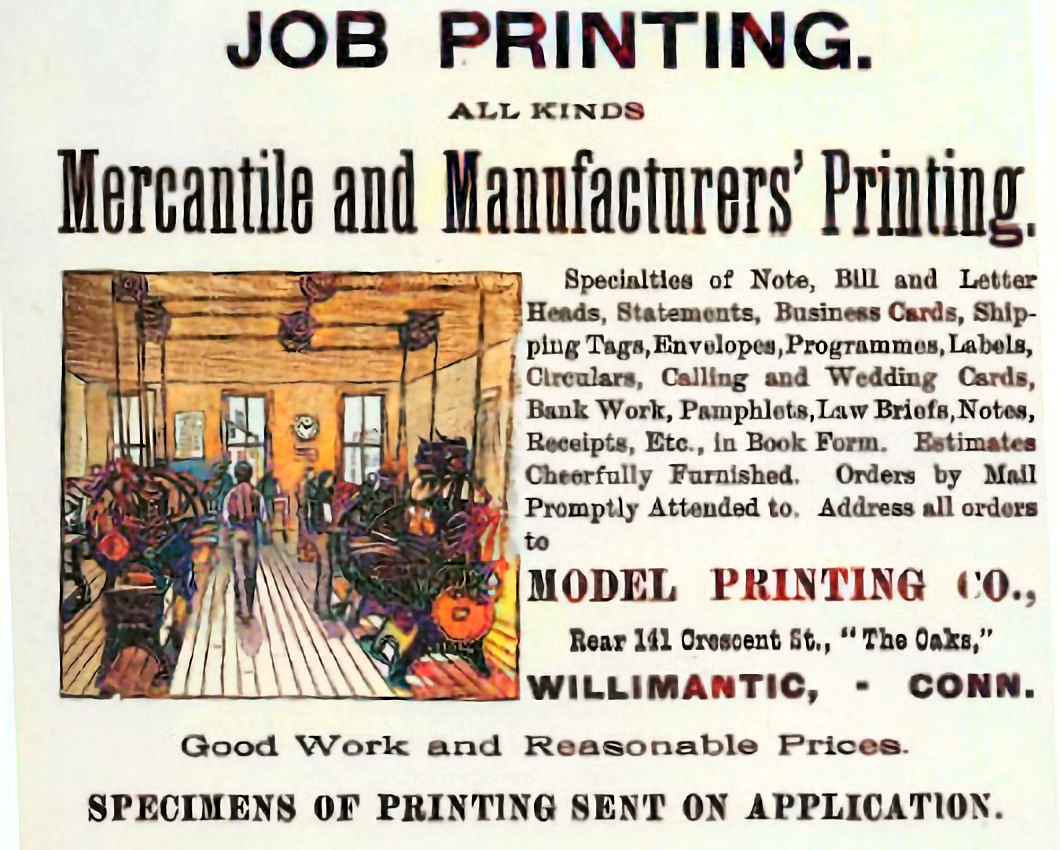 |
|
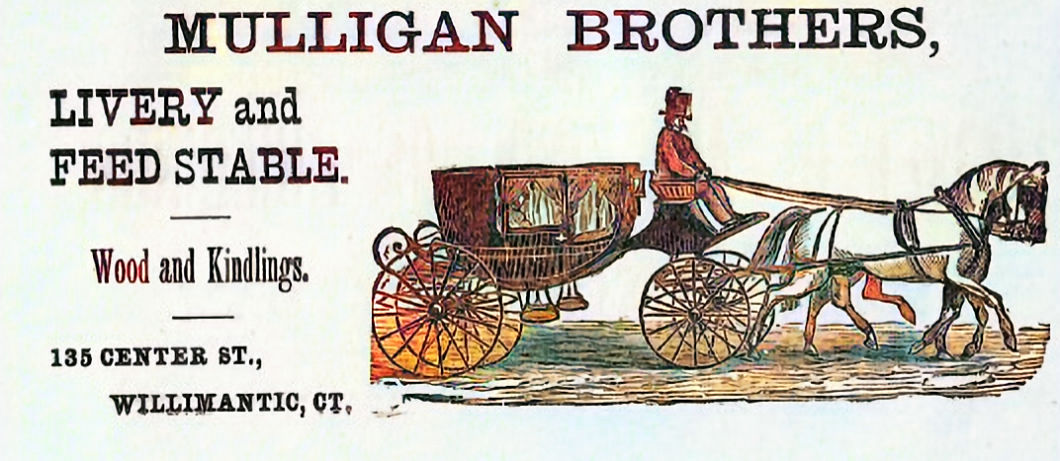 |
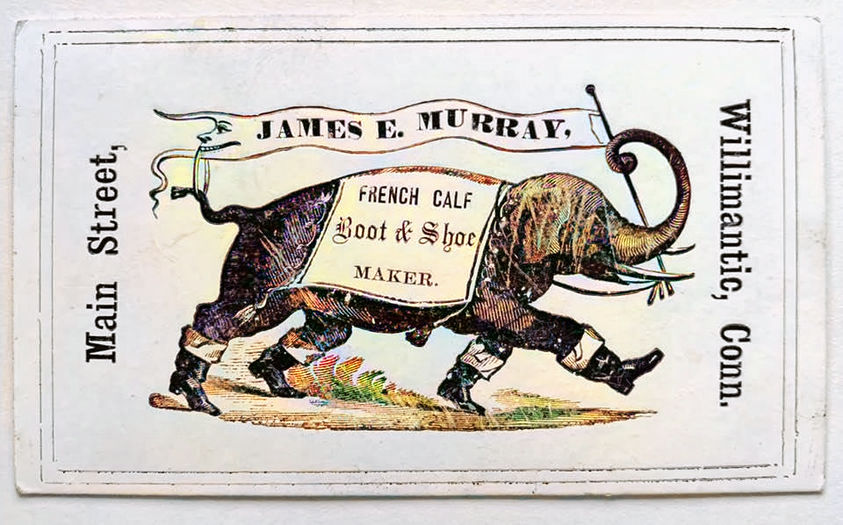 |
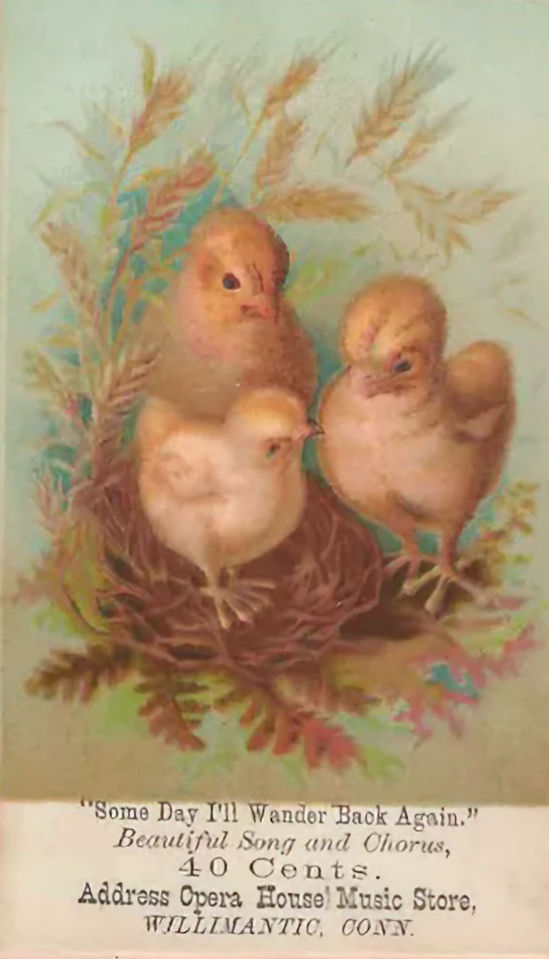 |
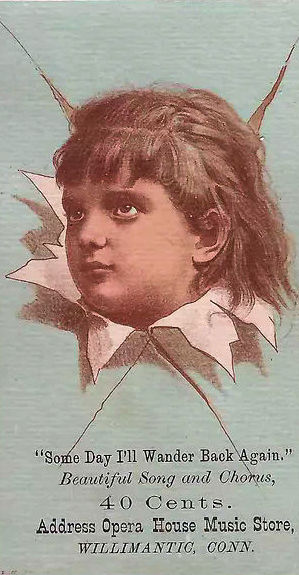 |
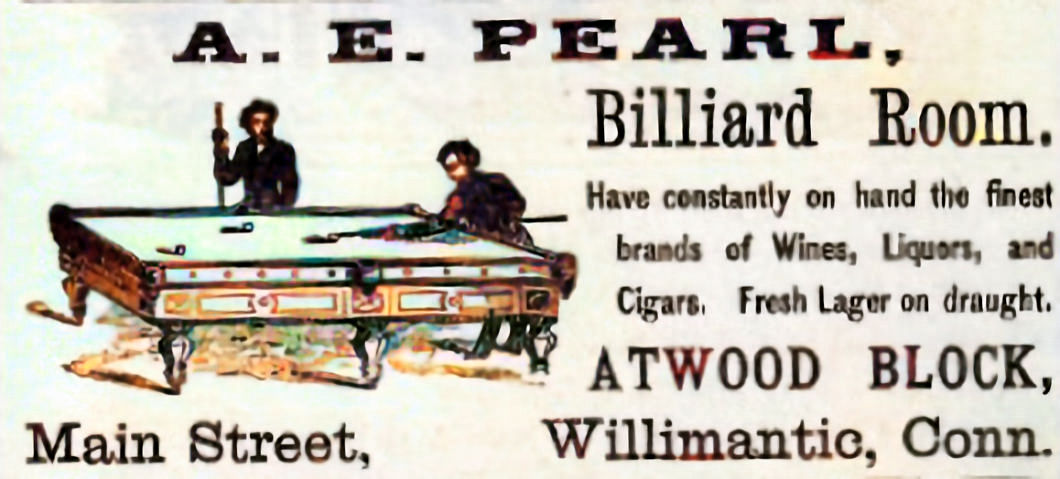 |
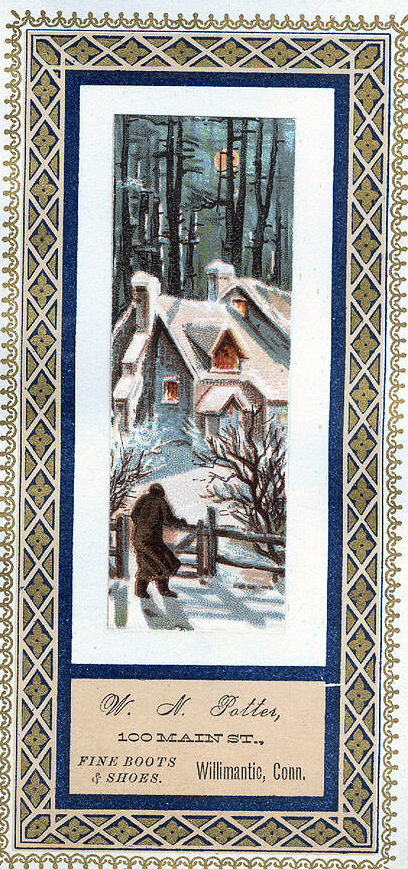 |
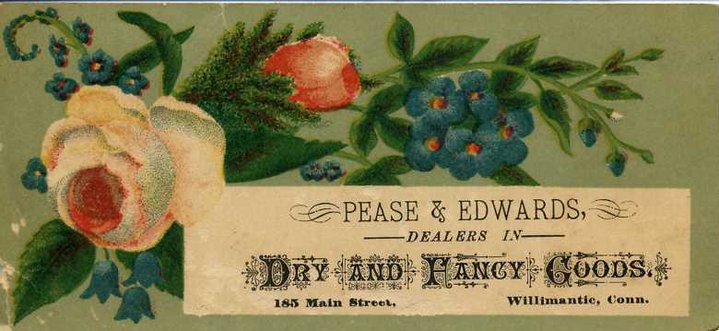
Pease & Edwards, dealers in Foreign and Domestic Dry and Fancy
Goods and Notions, Franklin Block, Main Street, Willimantic,
Conn. —There is an immense variety of articles now included
under the head of dry and fancy goods, and the number of such is
constantly increasing as the popular demand for novelties calls
forth fresh fabrics and original "notions." It naturally follows
that the only way to offer anywhere near a complete assortment
is to carry a very heavy as well as varied stock, and that to be
found at the establishment conducted by Messrs. Pease & Edwards,
in Franklin Block, Main street, is about as perfect an
illustration of what we mean by a. complete assortment as can be
pointed out in the entire city, for it comprises foreign and
domestic dry and fancy goods and notions in almost endless
profusion and at the same time is composed exclusively of fresh,
seasonable and saleable articles,, the firm considering their
store-space too valuable to be occupied by "back-number" goods.
The partners are Messrs. Charles W. Pease and Robert Edwards,
both of whom are natives of Cromwell,. Conn. Operations were
begun December 20,_ 1887, and a very extensive trade has been
built up, the residents of Willimantic being not at all slow to
recognize the advantages held out at thispopular store. The
premises consist of a double store, one portion measuring 75 x
25 feet and the other 60 x 20 feet, all necessary facilities
being at. hand to display the stock to excellent advantage.
Employment is given to from ten to twelve assistants, and prompt
and courteous attention is assured to every caller, while the
prices quoted will bear the severest scrutiny and comparison
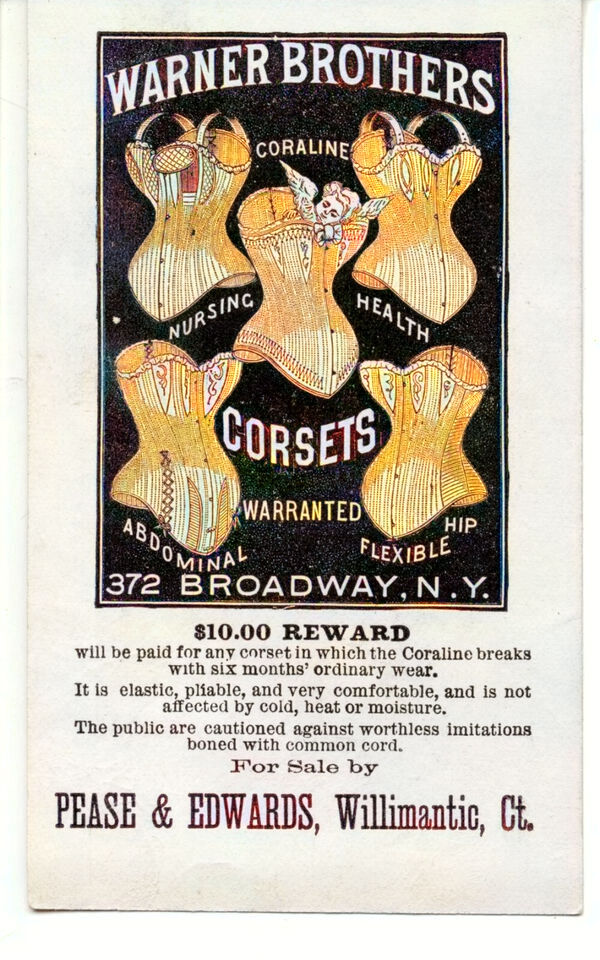 |
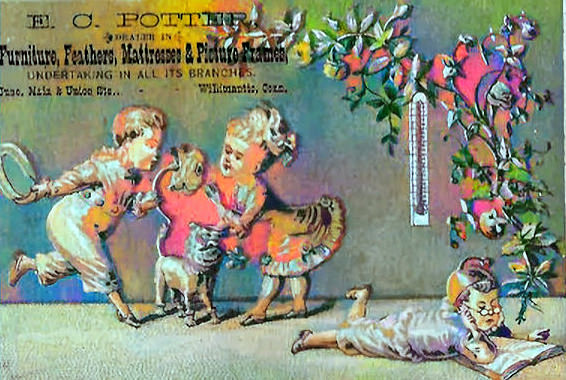 |
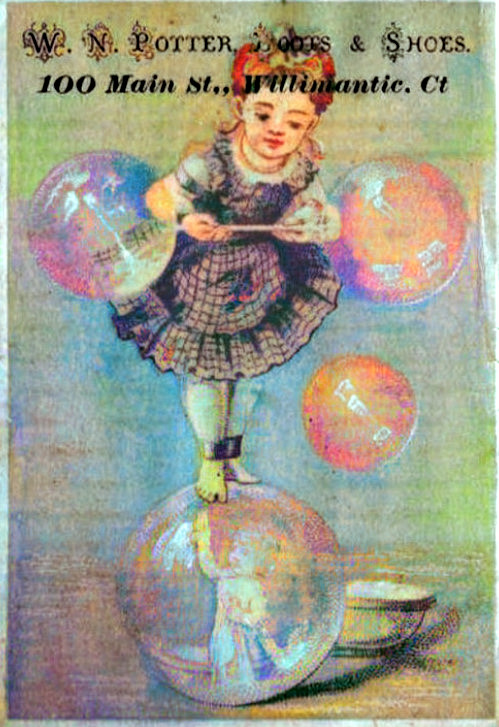 |
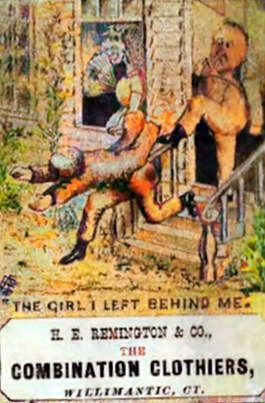
From Remington's advertisements:
"A very extensive and desirable
stock of clothing and gentlemen's furnishings, trunks, blankets,
etc., is constantly carried, both
a wholesale and retail business
being done, but a specialty being
made of the latter. Employment
is given to three assistants and
prompt and polite attention is
assured to every caller. The
partners are Messrs. H. E.
Remington and C. A. Capen.
Mr. Capen has held various
local offices and was chosen
as State representative in the
fall of 1888, and both Mr. Capen
and Mr. Remington- are very
widely and favorably known
in business circles throughout
this section."
|
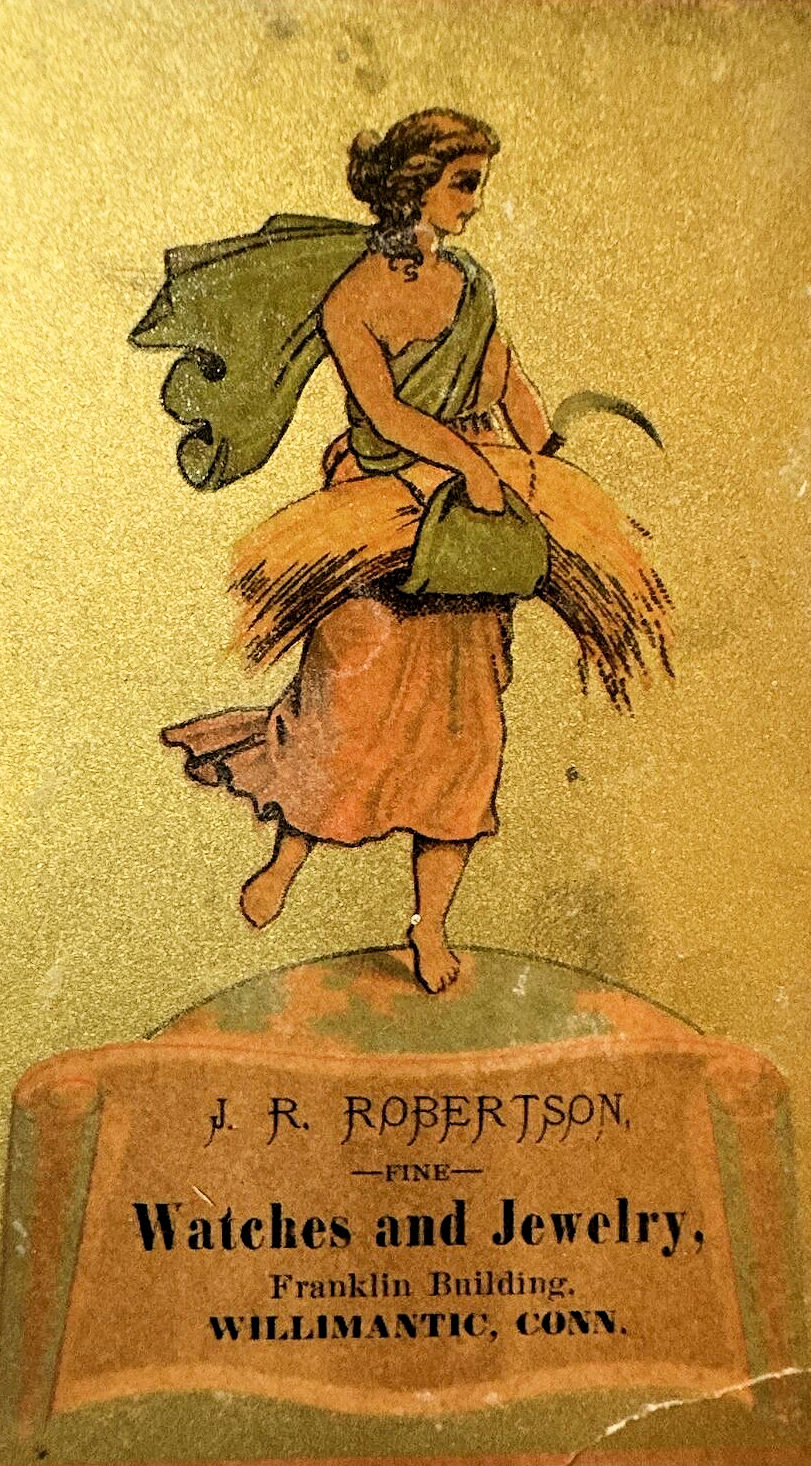 |
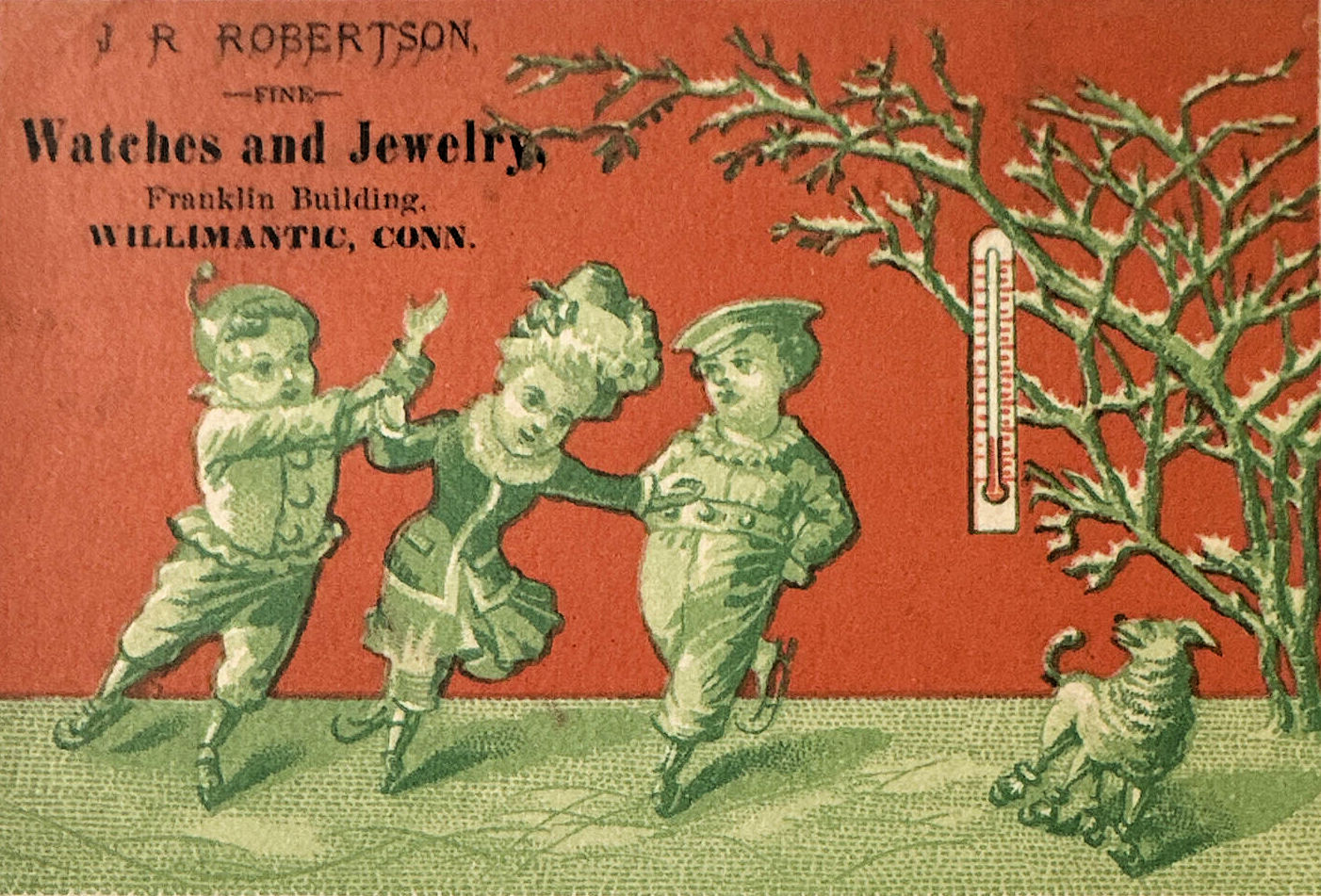 |
|
|
|
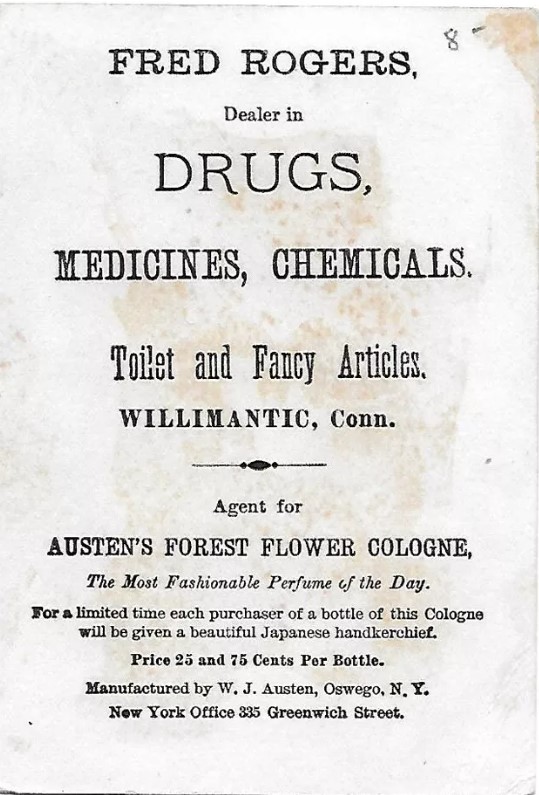 |
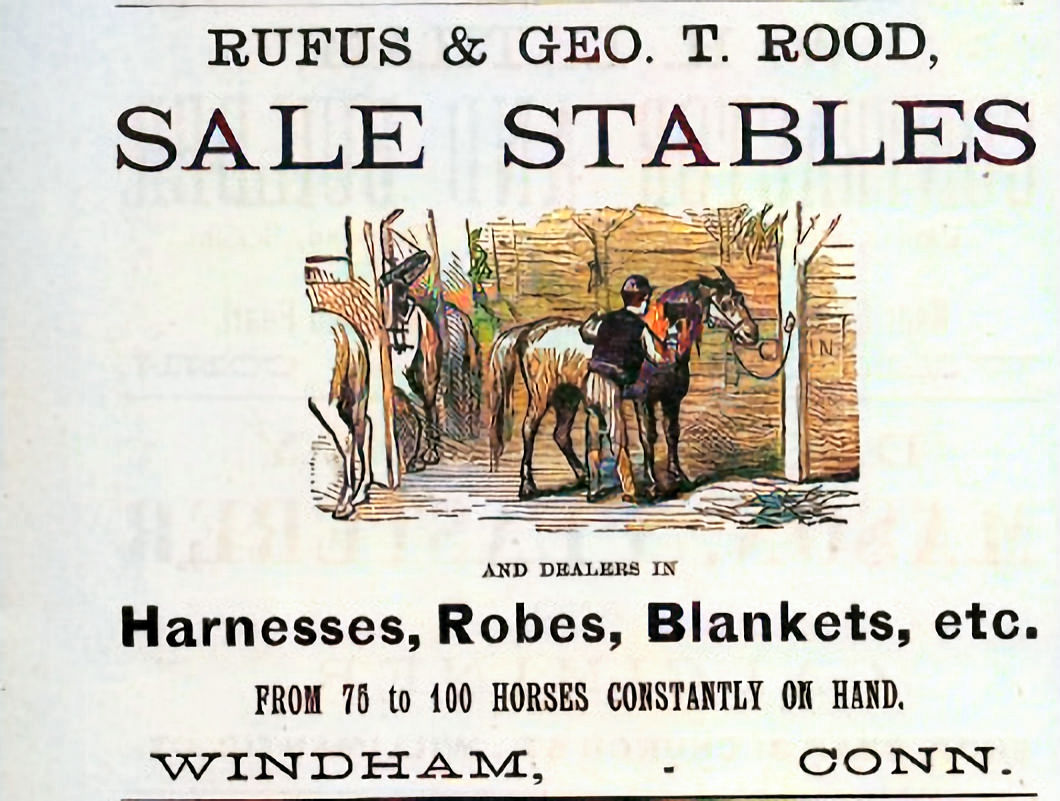 |
|
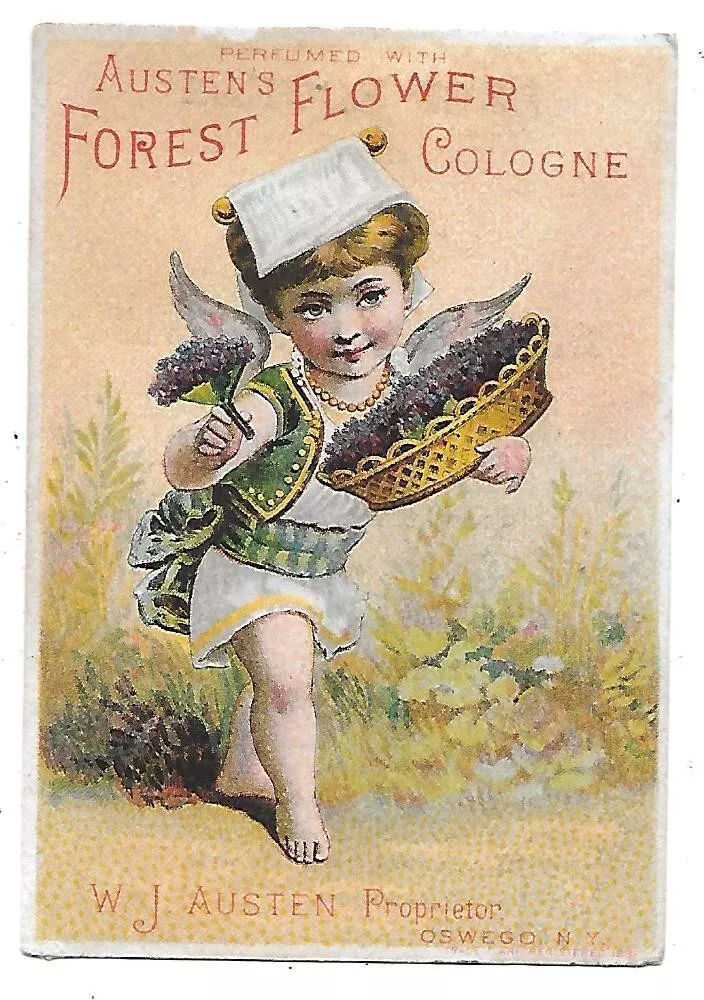 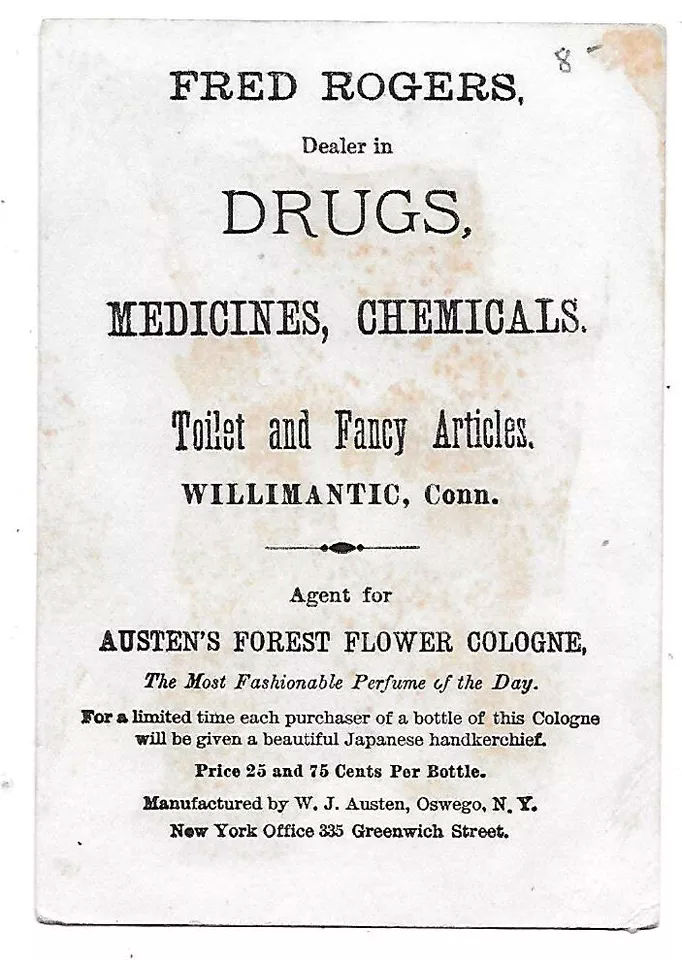 |
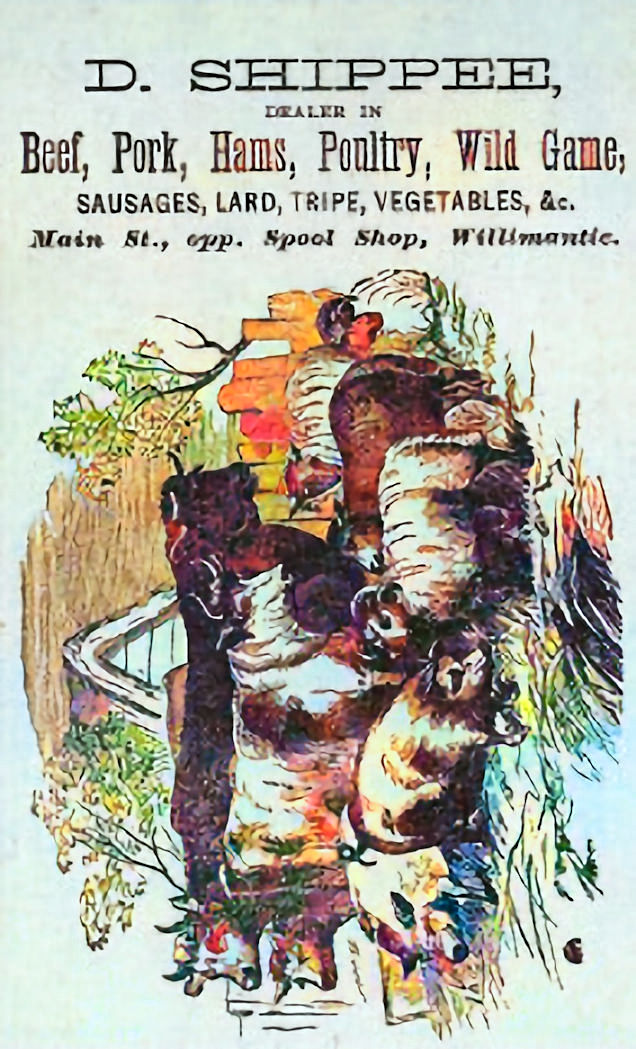 |
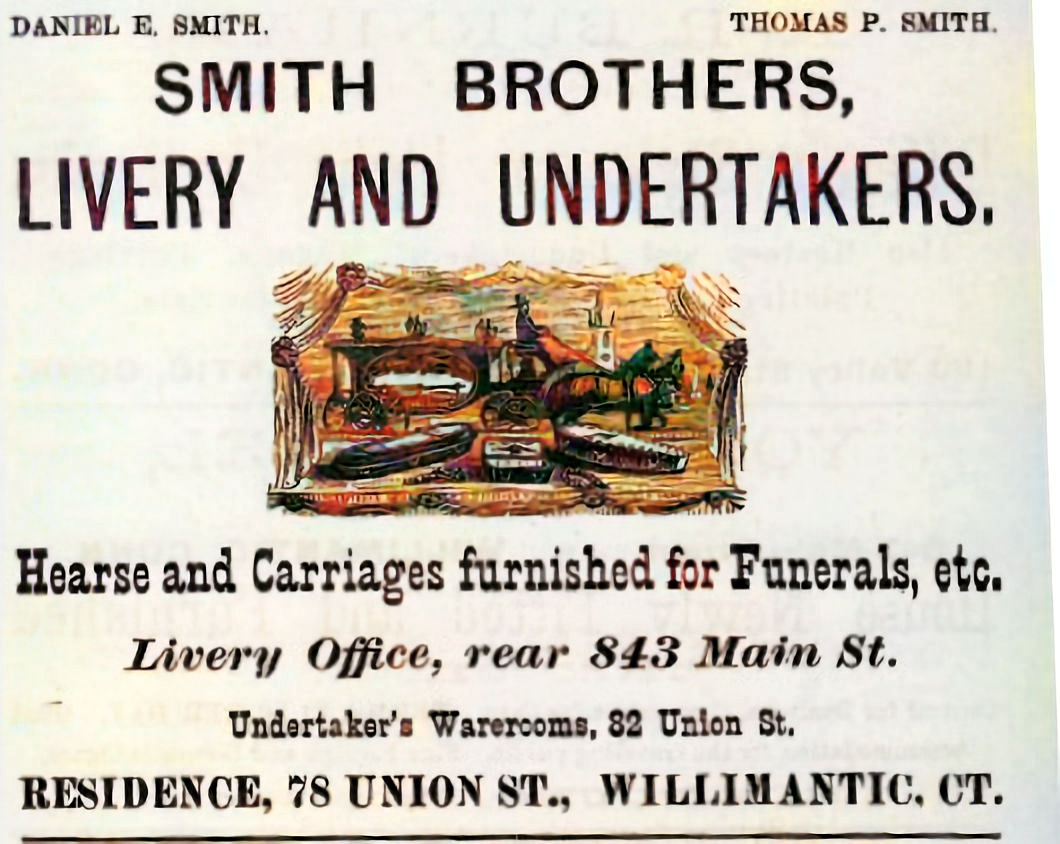 |
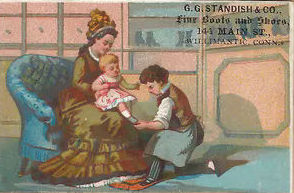 |
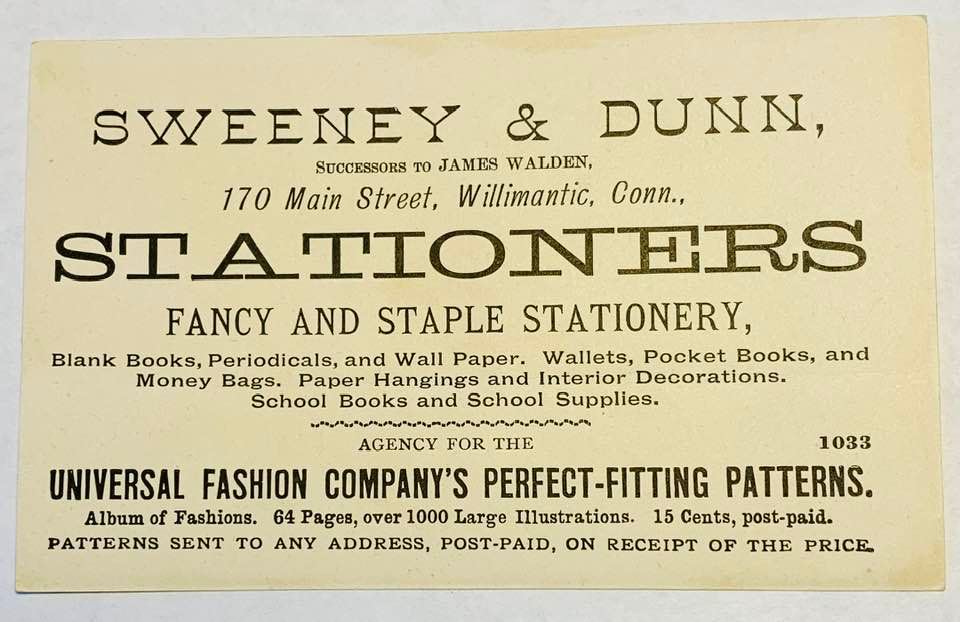
Sweeney & Dunn, Stationers,
Booksellers and Newsdealers :The
business carried on by Messrs. Sweeney & Dunn, at No. 170 Main
street, was founded about thirty-five years ago, operations
having been
begun by Mr. James Walden in 1855, and he being succeeded by the
present proprietors in 1887 (who also maintain an establishment
at
No. 119 Main street, known as the Willimantic News Depot,
devoted
to cigars, tobacco, and periodicals, where they first started in
18S4).
The firm deal in stationery, books, periodicals, newspapers,
paper
hangings, etc., and carry a very heavy stock, both a wholesale
and retail business being done. The very latest novelties in
fashionable stationery are always to be found at their
establishments,
together with a complete line of commercial stationery, blank
books, etc.
Novels and other books are dealt in quite extensively, the firm
being
prepared to furnish any book at short notice, at the regular
retail price.
Pens, pencils and writing materials of all kinds, both plain and
ornamental, are carried in stock, as is also as carefully a
chosen an
assortment of paper hangings as the city can show.
|
|
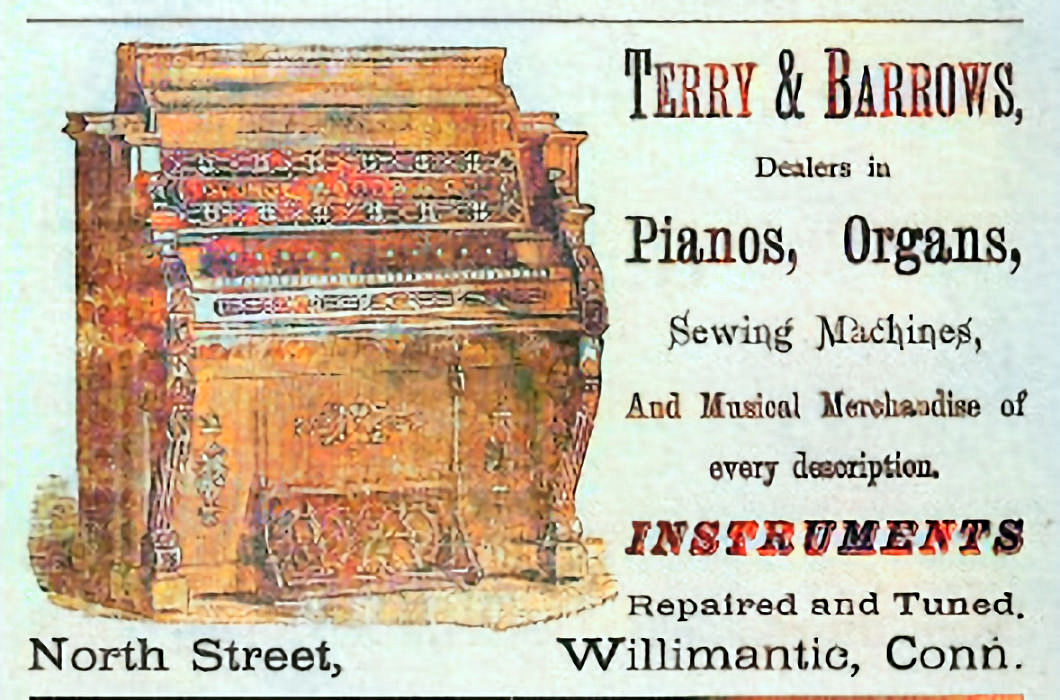
|
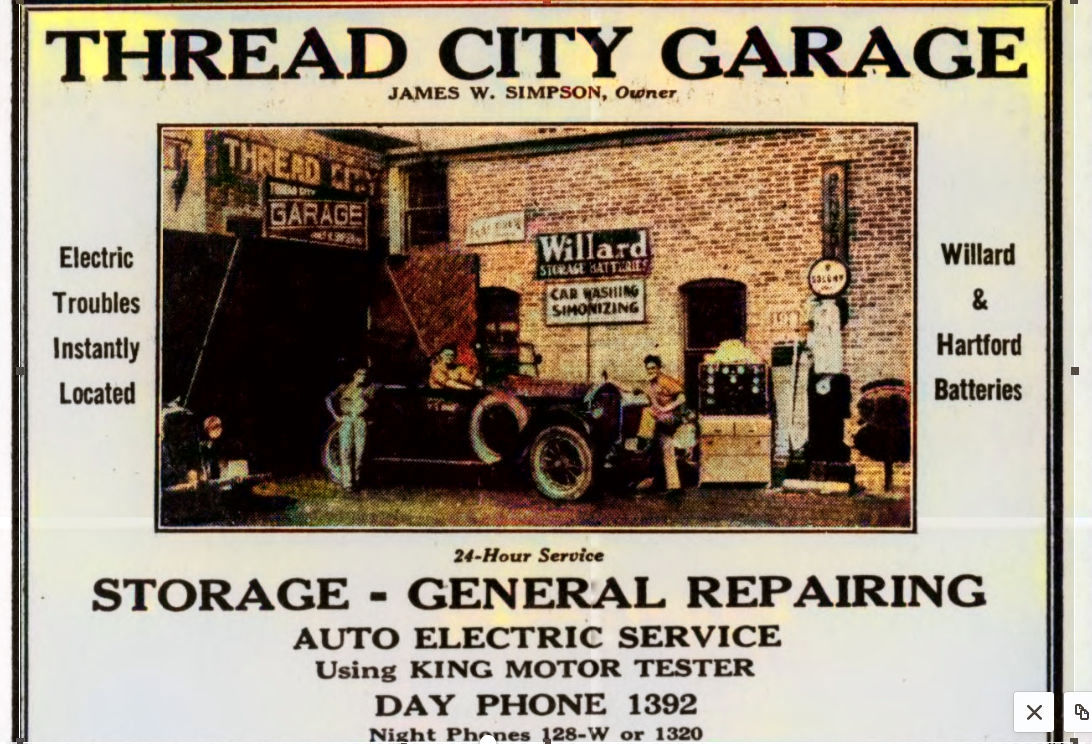 |
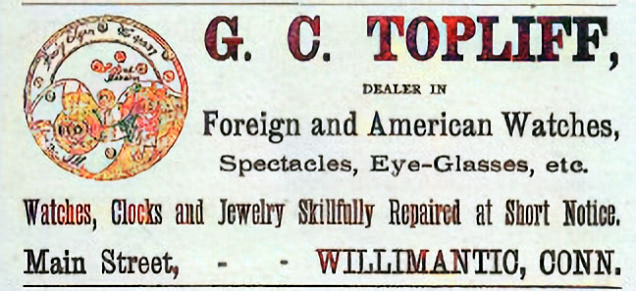 |
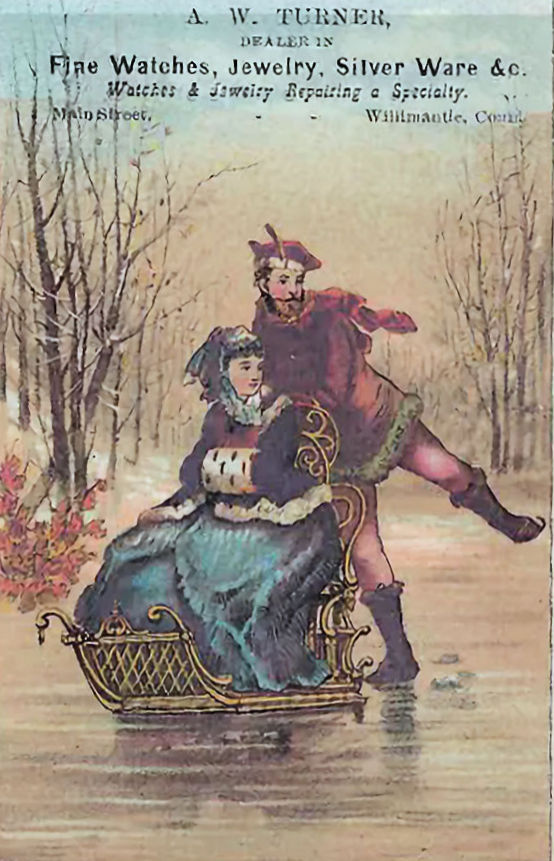
|
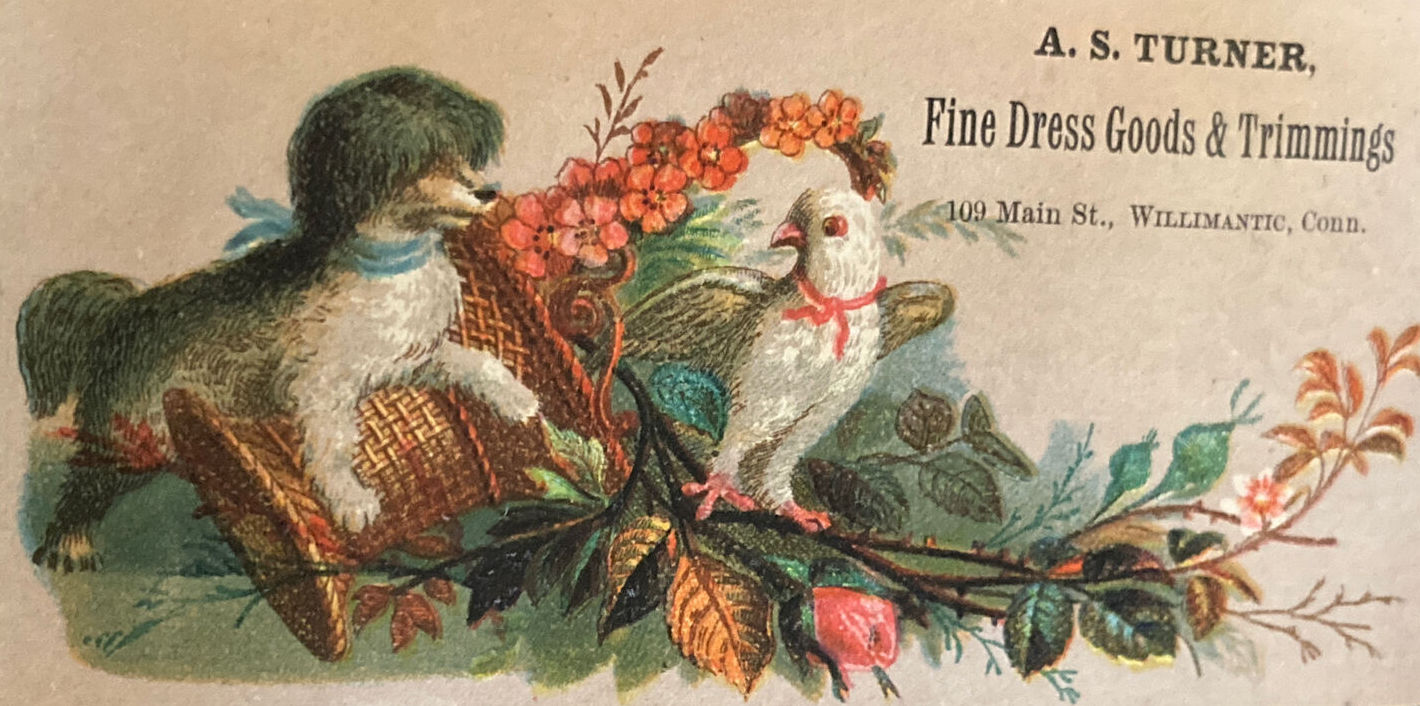 |
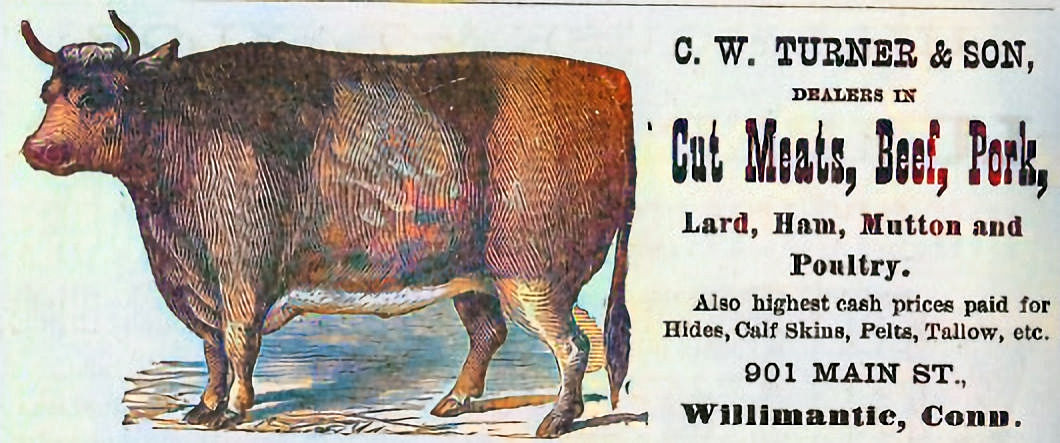 |
|
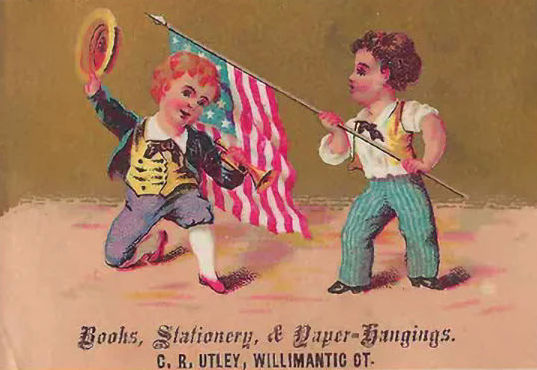
Chas.
R.Utley, dealer
in
Books and Stationery, Paper Hangings, Shades, Fixtures, etc.,
112 Main Street, Willimantic, Conn.—It would certainly be an
unpardonable omission did we fail to make mention of the
enterprise carried on by Mr. Chas. R. Utley, at No. 112 Main
street, for this is a representative house of its kind, and
ranks with the most prominent in this section of the city.
Operations were begun in 1877, by Mr. C. C. Crandall, who was
succeeded by the present proprietor in 1879. Mr. Charles R.
Utley is a native of Chaplin, Conn., and was burgess for 1888
and 1889. An extensive wholesale and retail business is done,
and books, stationery, paper hangings, shades, fixtures, etc.,
are constantly handled. The premises now utilized comprise one
floor 85 x 20 feet, with basement. This store was taken owing to
lack of space at the old location for the rapidly increasing
business. Where so varied a supply of articles is carried, it is
impossible in a notice so brief as the exigencies of space
require this to be, to make proper detailed mention of the many
commodities contained within it, but it may be oroadly stated
that whatever Mr. Utley offers to nis customers, is sure to be
reliable, and fully worth the price set upon it. The books
handled are varied in binding as well as in subject, and not
only is a fine assortment of the most popular work carried, but
orders will be taken for any desired book, the volume being
supplied at the regular market price. Some beautiful patterns
are shown in wall papers, and shades and fixtures, and choice
designs are offered at low rates.
|
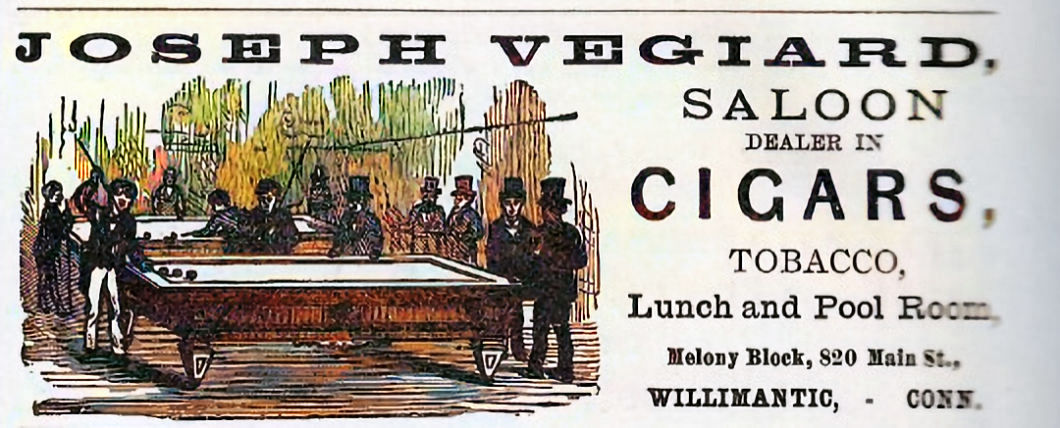 |
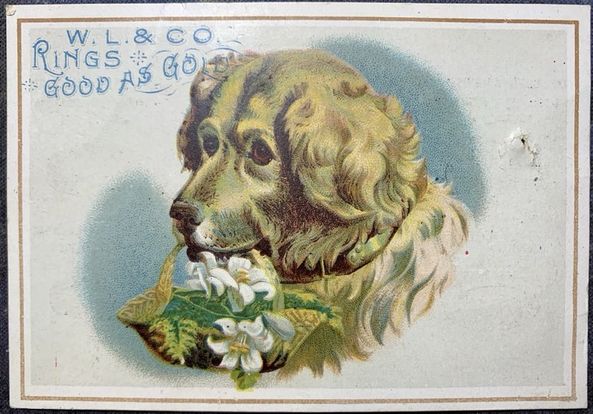 |
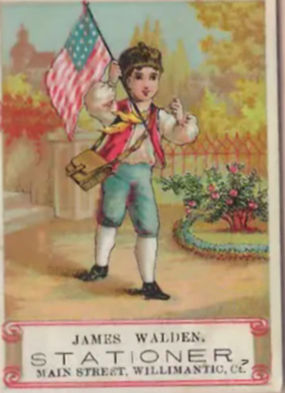
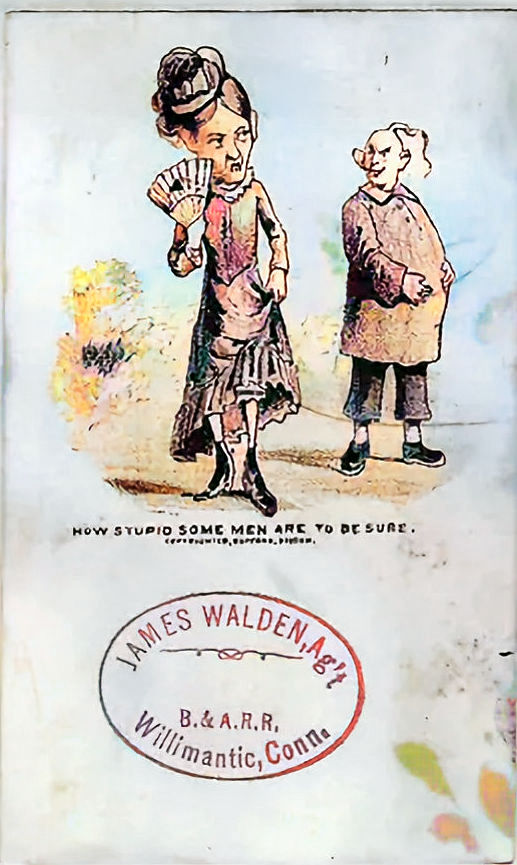 |
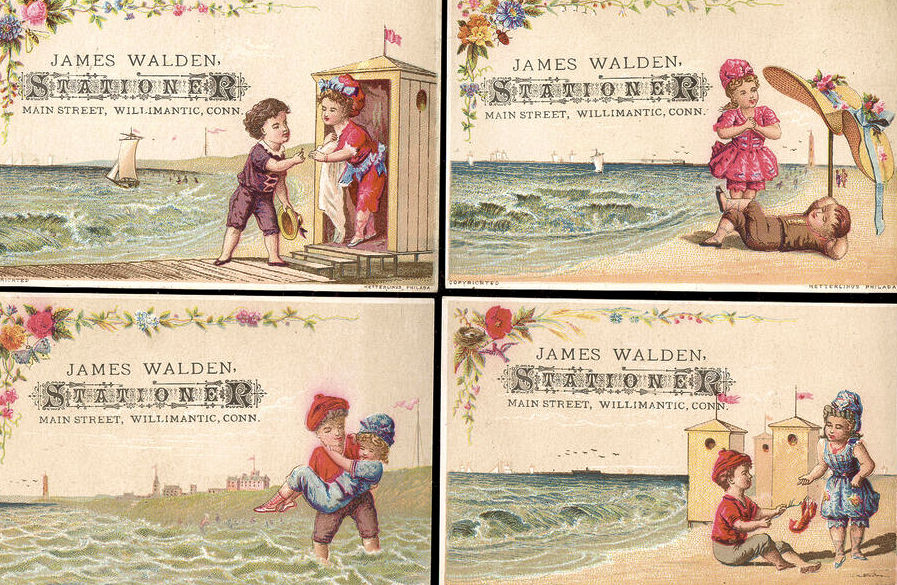 |
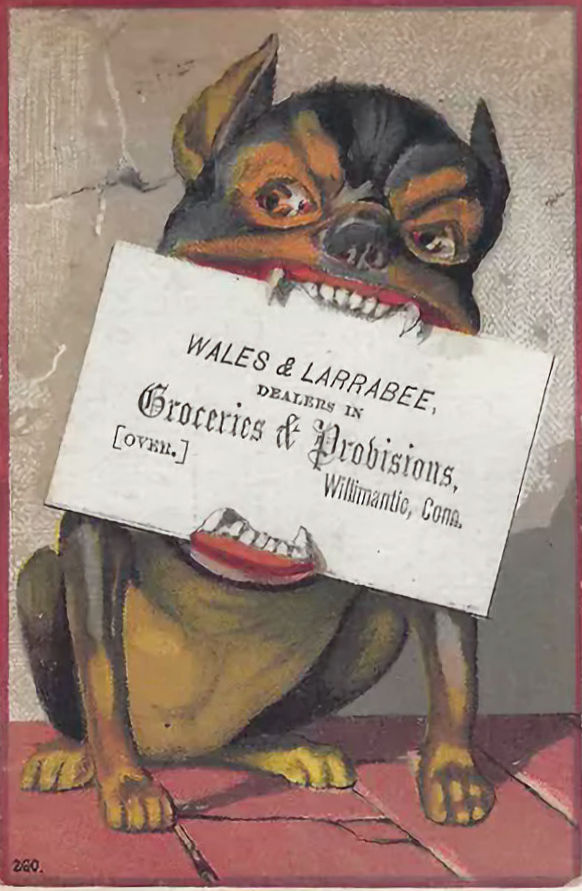 |
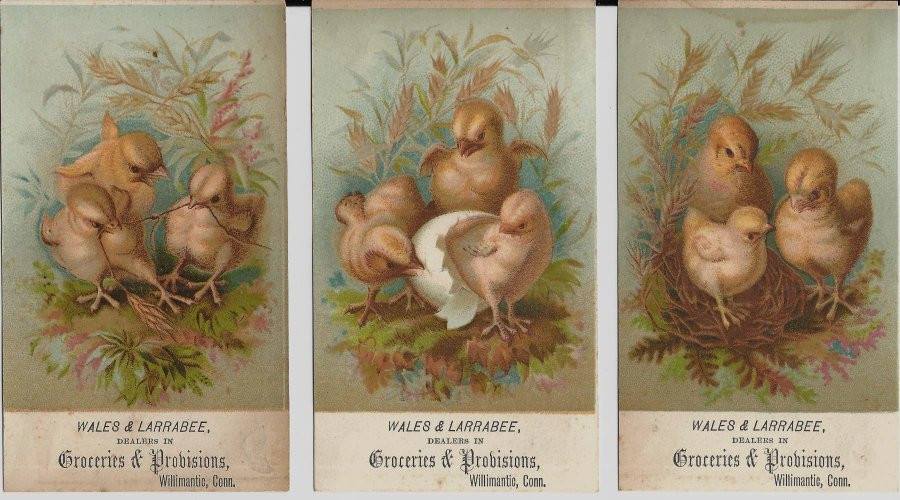
Started in business as Wales and Hyde
The
establishment
conducted by Messrs. Wales & Hyde
makes no great pretensions and yet it is worthy of the most
liberal patronage for the simple reason that no goods are sold
under false pretenses, every article being guaranteed to prove
just as represented in every respect. Messrs. Wales & Hyde have
built up quite a large business, for the public are not slow to
appreciate fair dealing and enterprise and are pretty sure to
sujiport any undertaking in the management of which both of
these are combined. Tile premises are located at 28 Church
street, and contain a carefully selected stock of choice family
groceries and provisions. This firm does not claim to sell lower
than everybody else or to be constantly offering goods "below
cost," but they are content witli a small margin of profit, and
a dollar will go about as far in this store as at any similar
establishment in town. Orders are promptly filled, every caller
receiving careful and polite attention, Itotli from the
proprietors and their well-informed assistants.
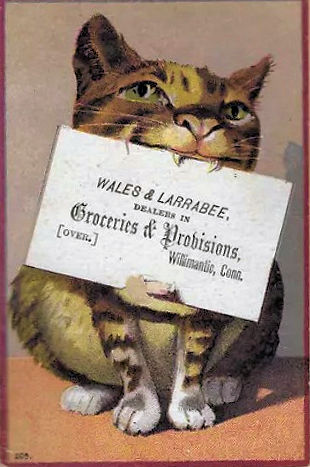
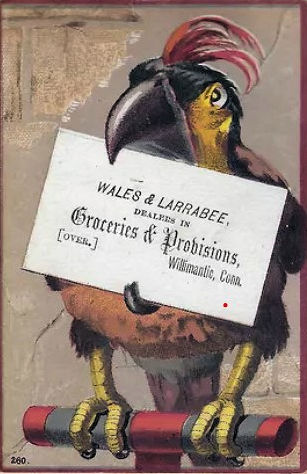
|
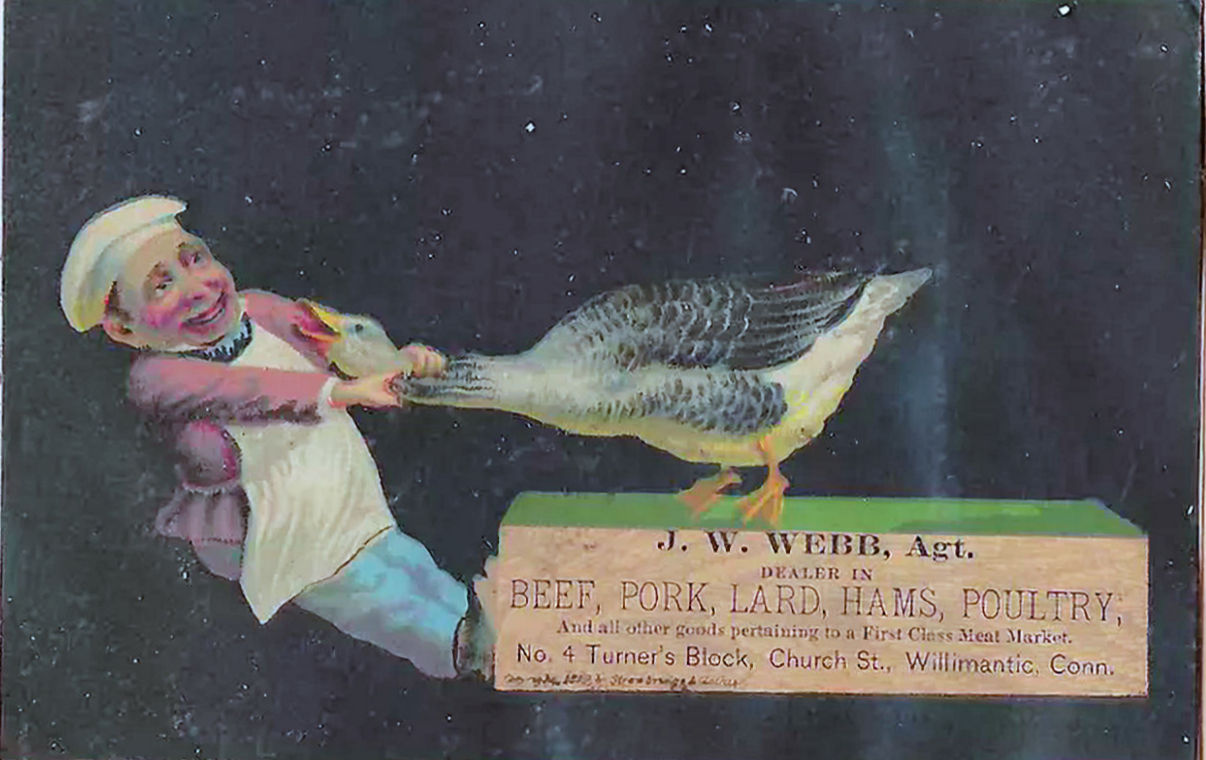
J.W.Webb, Marketman
and provision
dealer, 13 Turner's Block, It would probably be impossible
to find an establishment more universally known in this vicinity
than that conducted by Mr. J. W. Webb, at No. 13 Church street,
and the more thorough an investigation is made around town, the
more one is convinced in the idea that this enterprise ranks
second to no other of a similar nature in Willimantic and
vicinity. It was inaugurated by its present proprietor, and the
business has not reached its present development and magnitude
on account of good luck, but simply because the furnishing of
uniformly superior articles at uniformly low prices, is sure to
result in the attainment of a large trade. The premises occupied
are 20X45 feet in dimensions, and the stock handled includes
meats of all kinds. No pains are spared to maintain the high
reputation which the establishment has long since been accorded,
and both as regards quality, and price, the articles handled
will be found to give perfect satisfaction. Five assistants are
required to properly handle the details of this extensive
wholesale and retail business and customerg are served with a
precision and celerity which are both novel and 37 and reiail
trade transacted requires the services of three efficient
assistants. This firm are in a position to meet all honorable
competition, and while they pay more attention to the (piality
of their goods than to the ofi'ering cheap articles, their
prices will be found to compare favorably with those quoted at
other establisliments on goods of equal merit. gratifying. The
proprietor of this prosperous enterprise is a native and
selectman of Williraantic and is not only universally known
throughout this locality, but also generally esteemed.
|
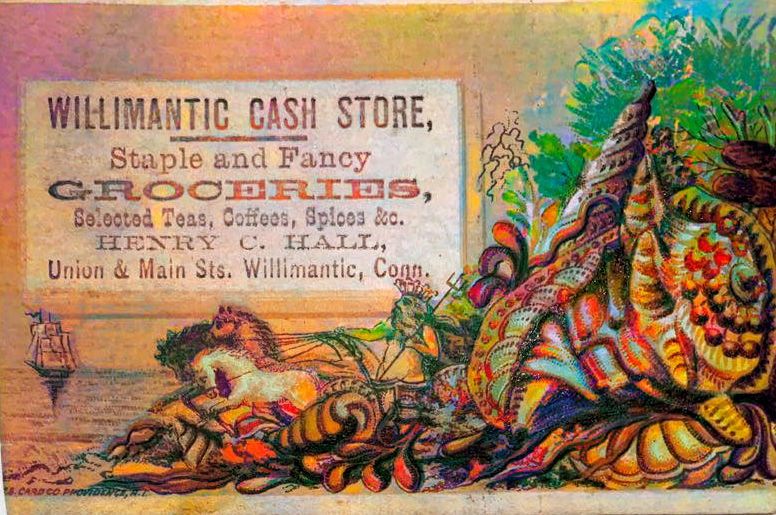 |
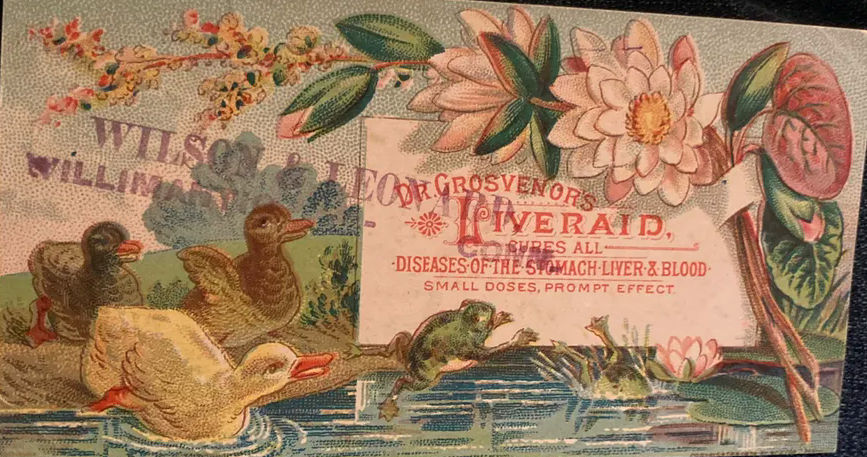 |
|
|
|
|
|
|
|
|
|
|
|
|
|
|
|
|
|
|
|
|
|
|
|
|
|
|
|
|
|
|
|
|
|
|
|

|
|